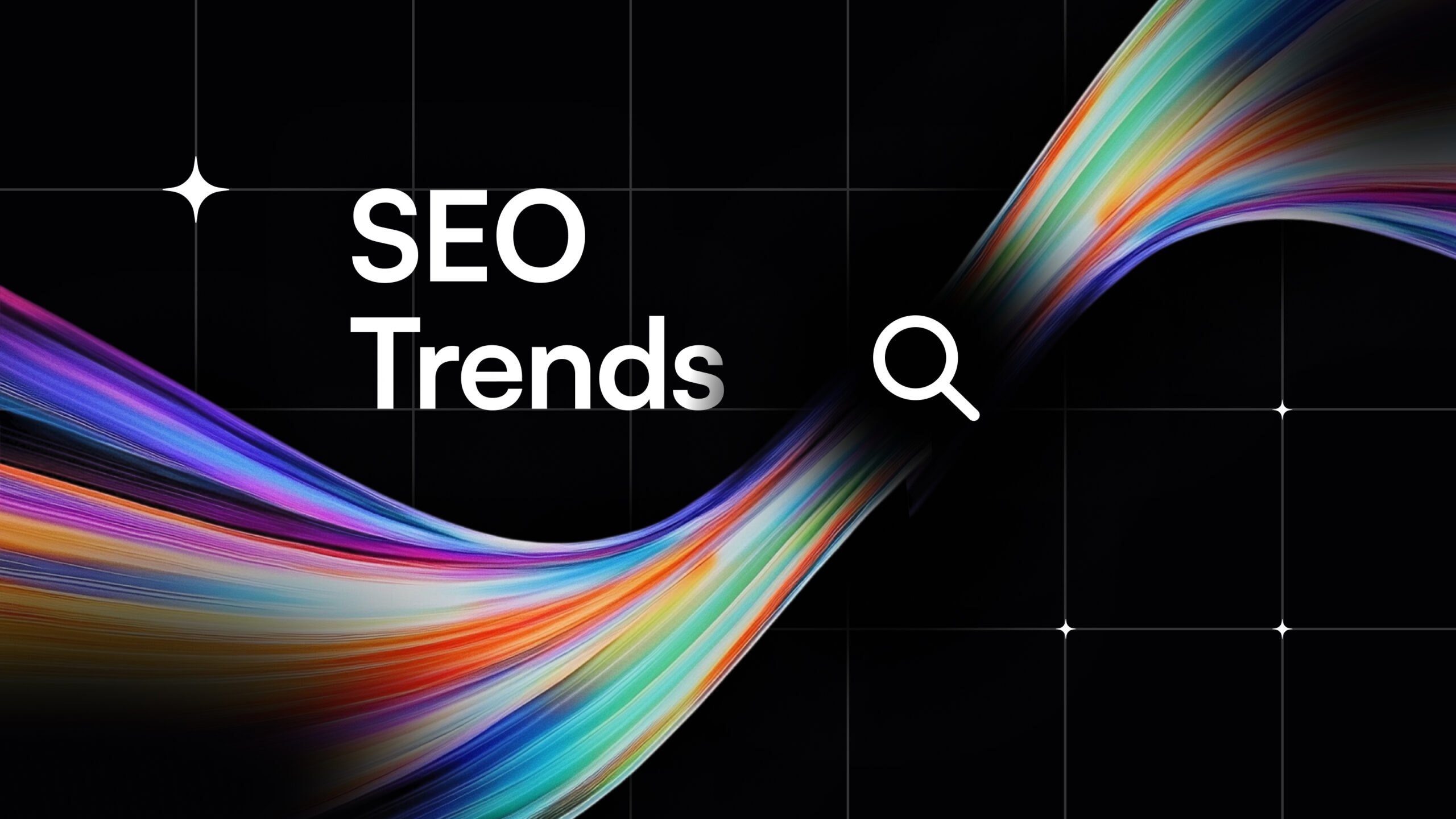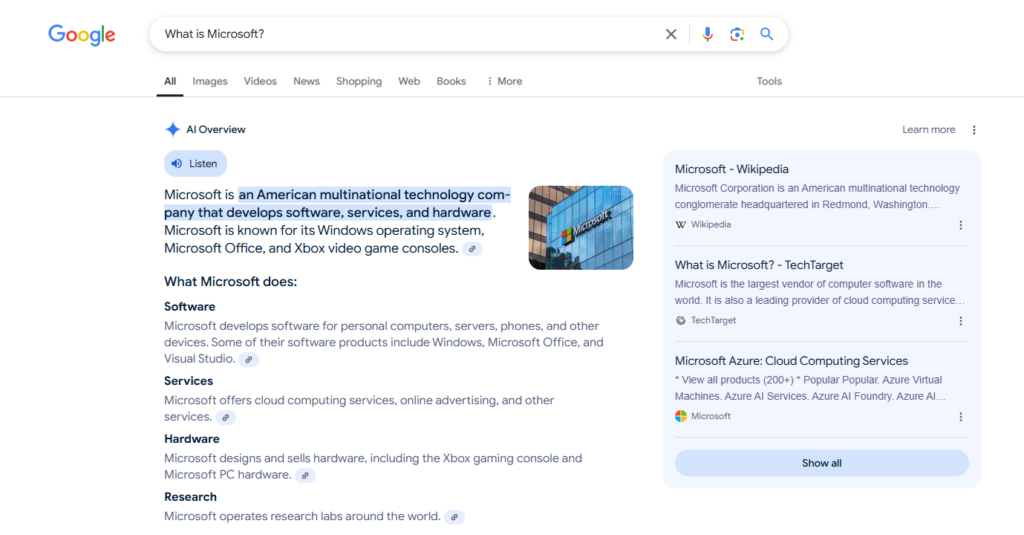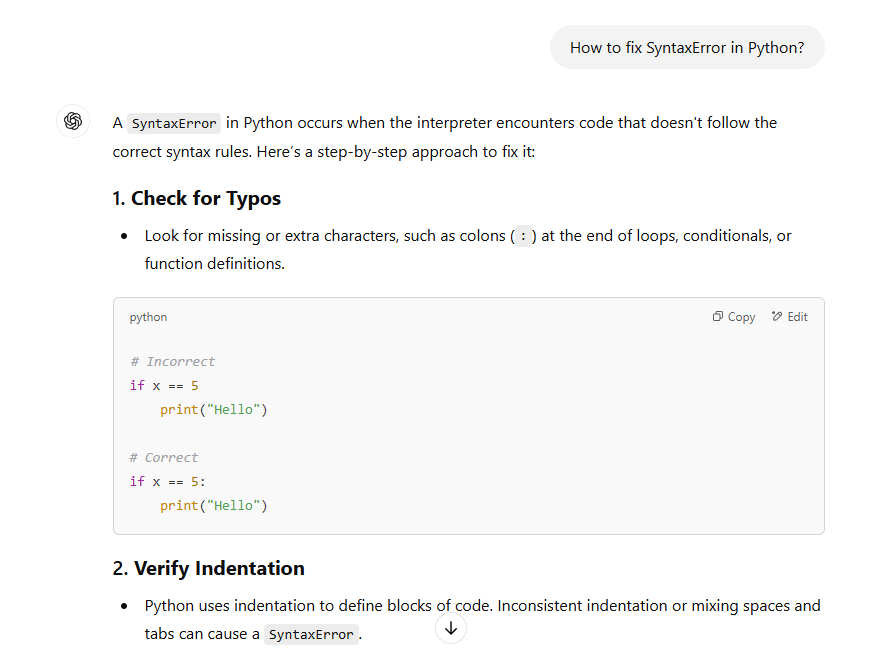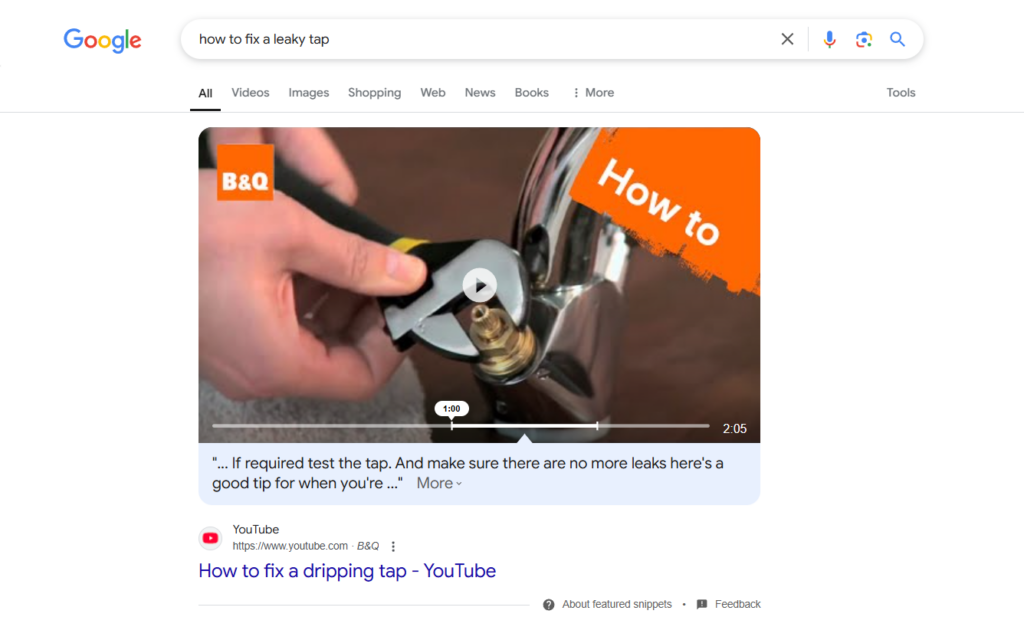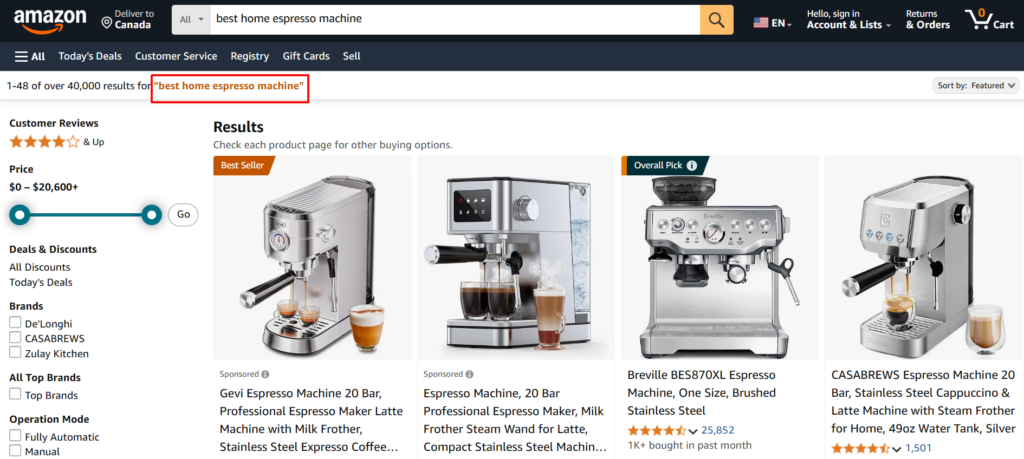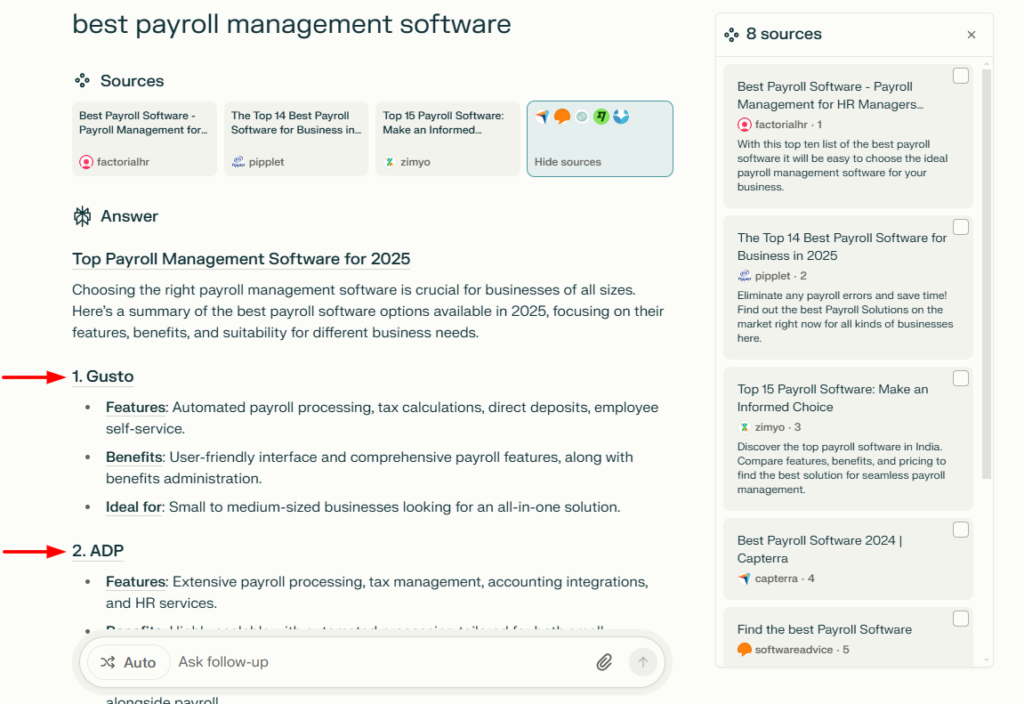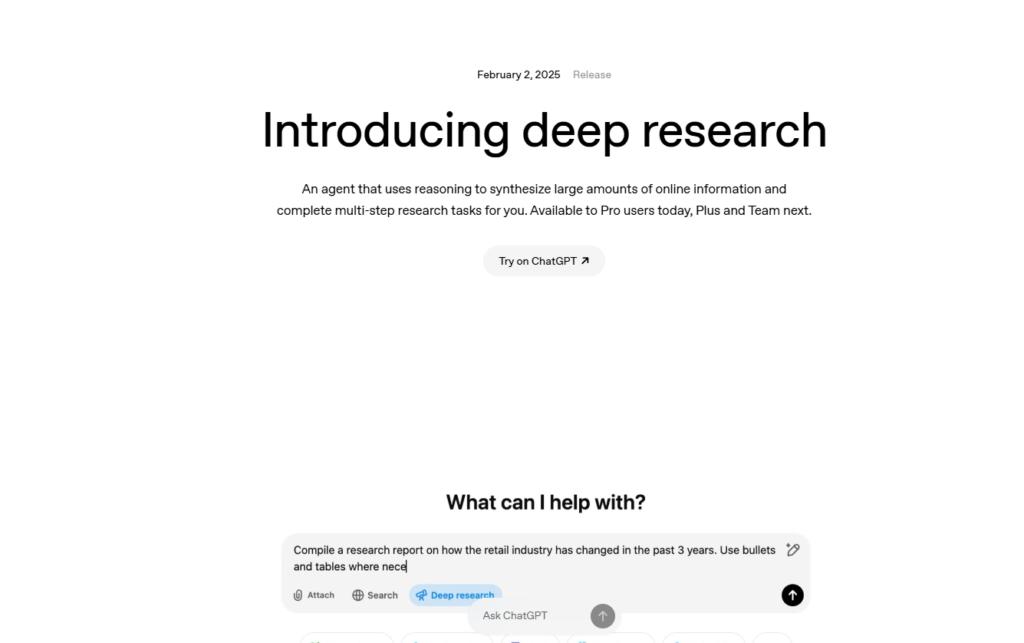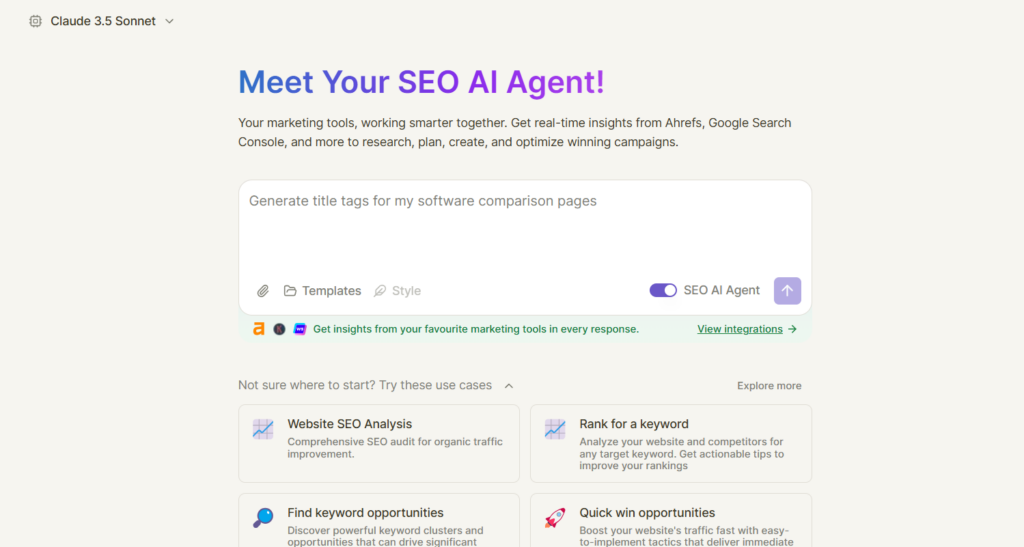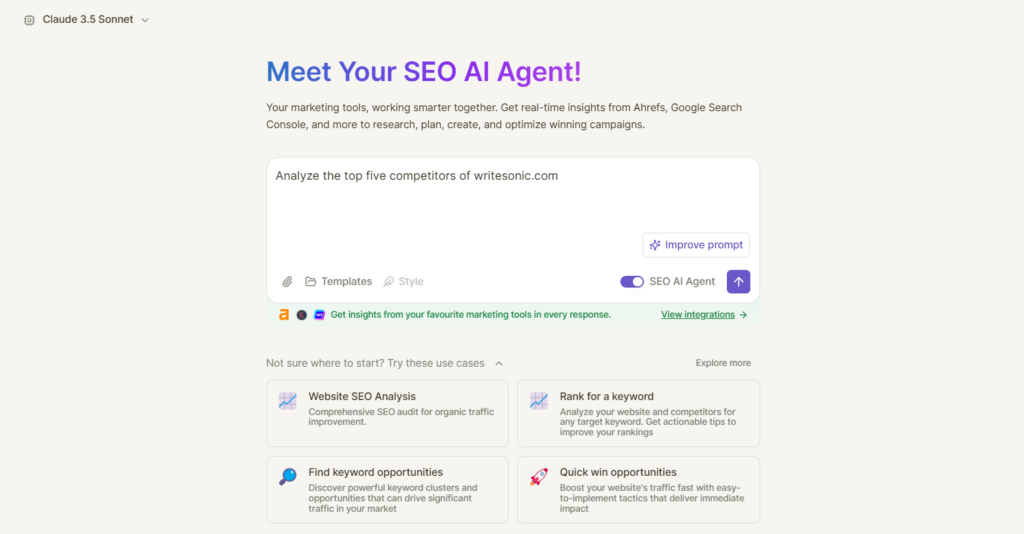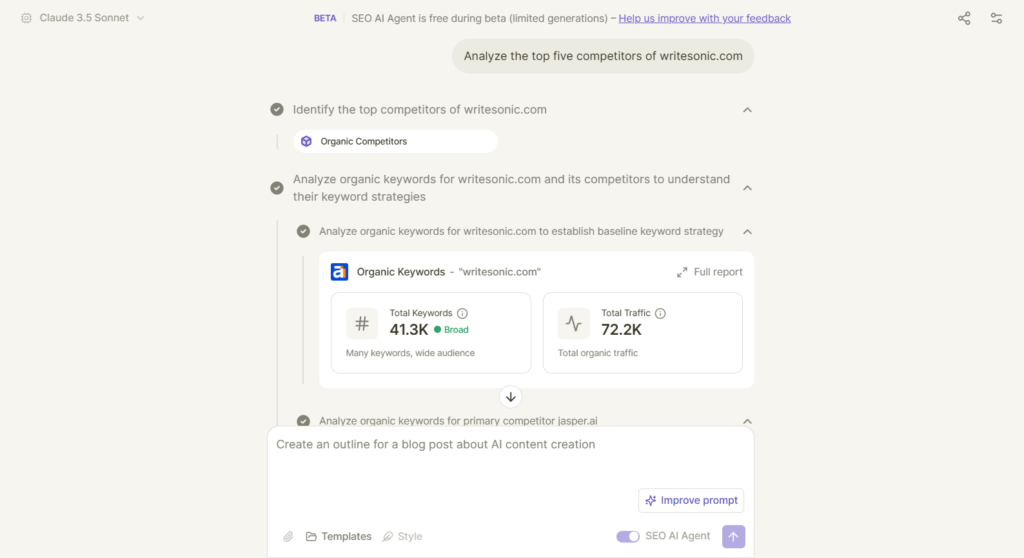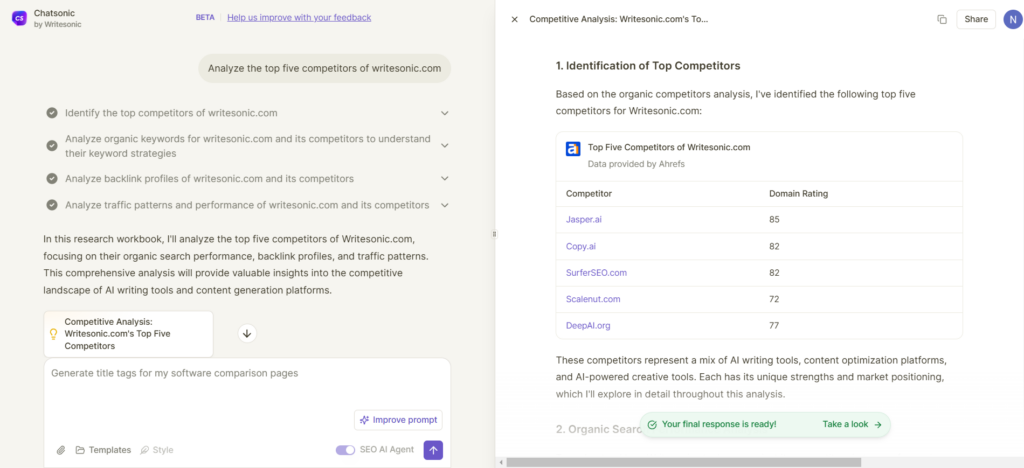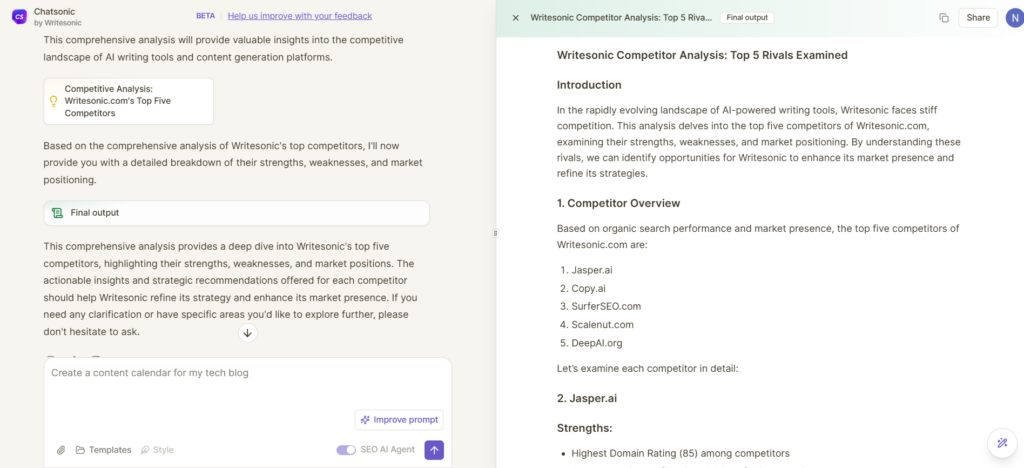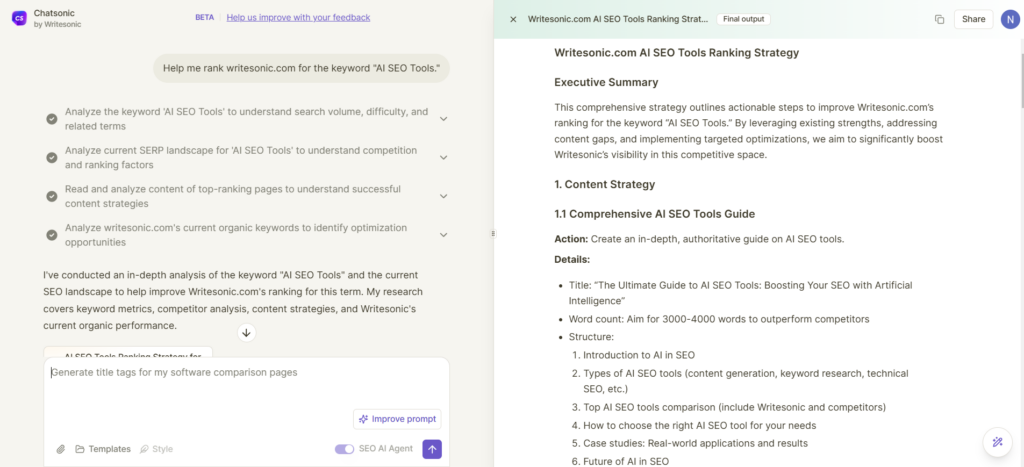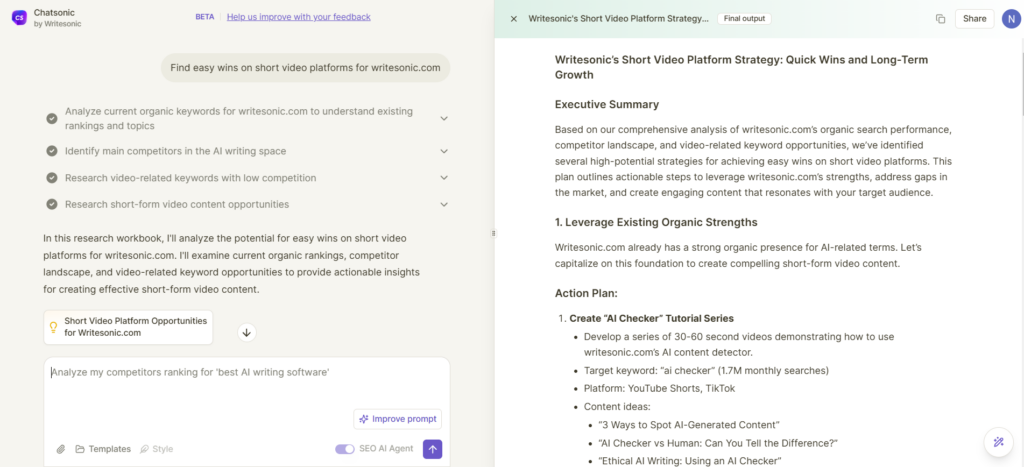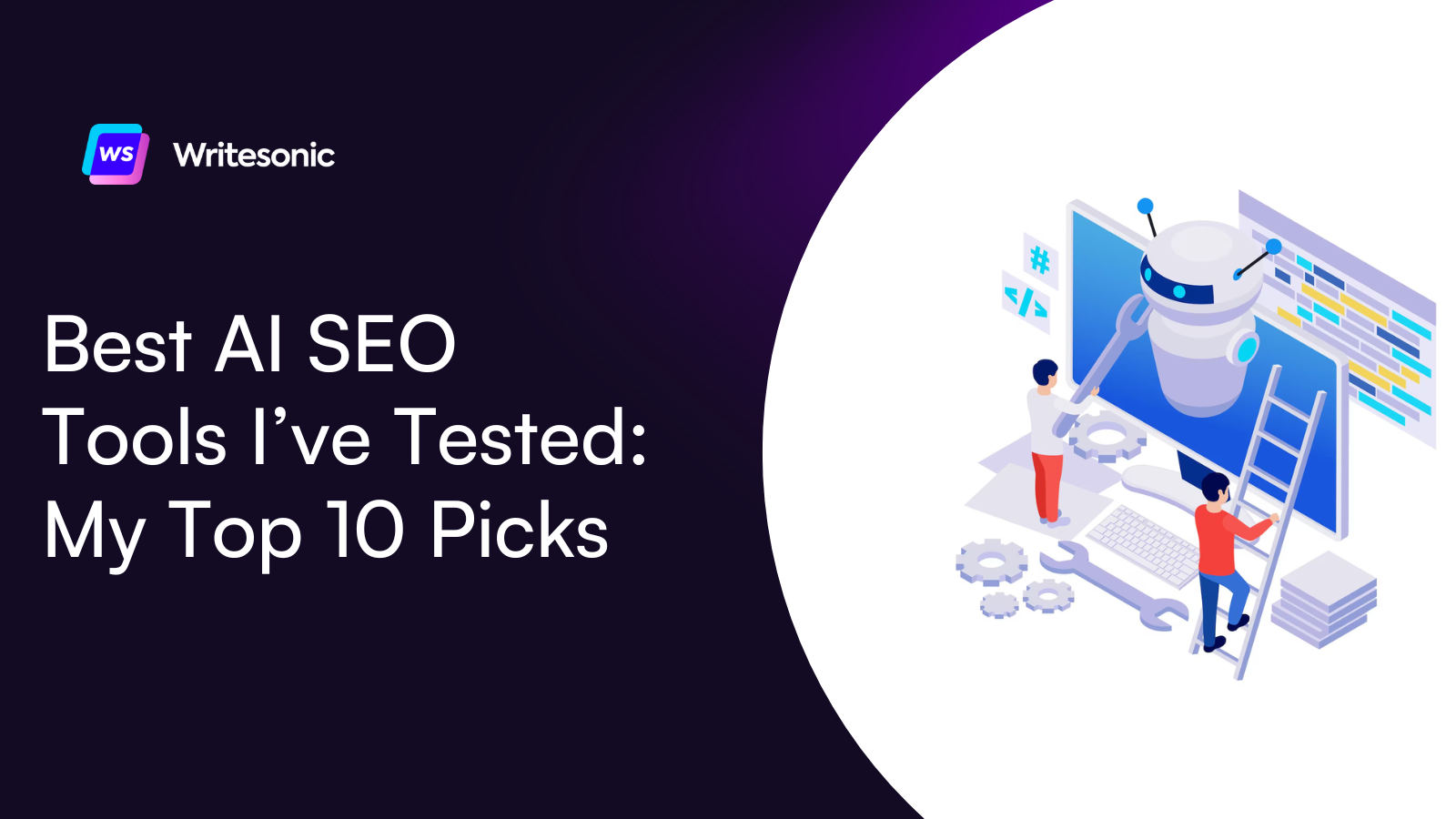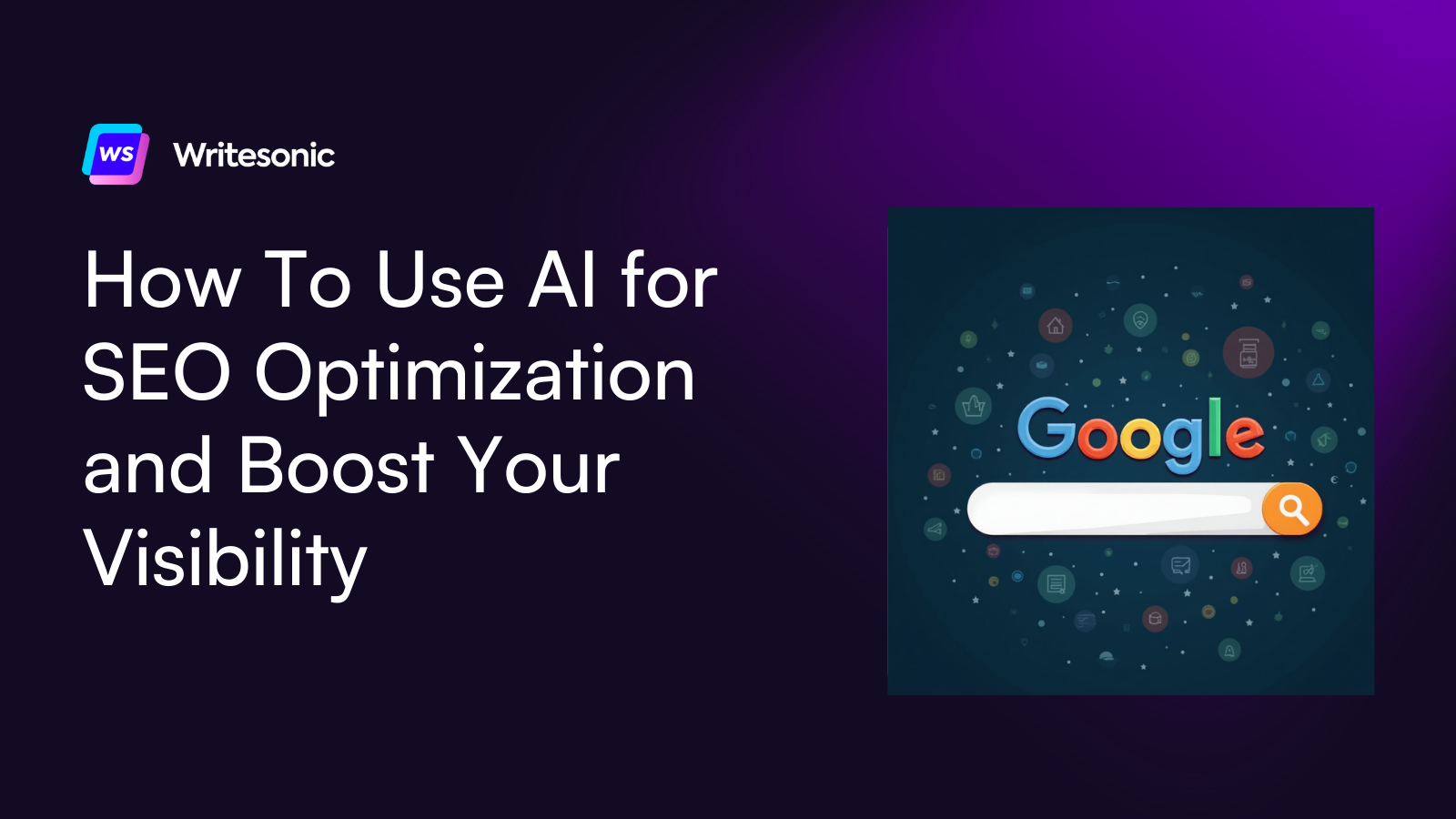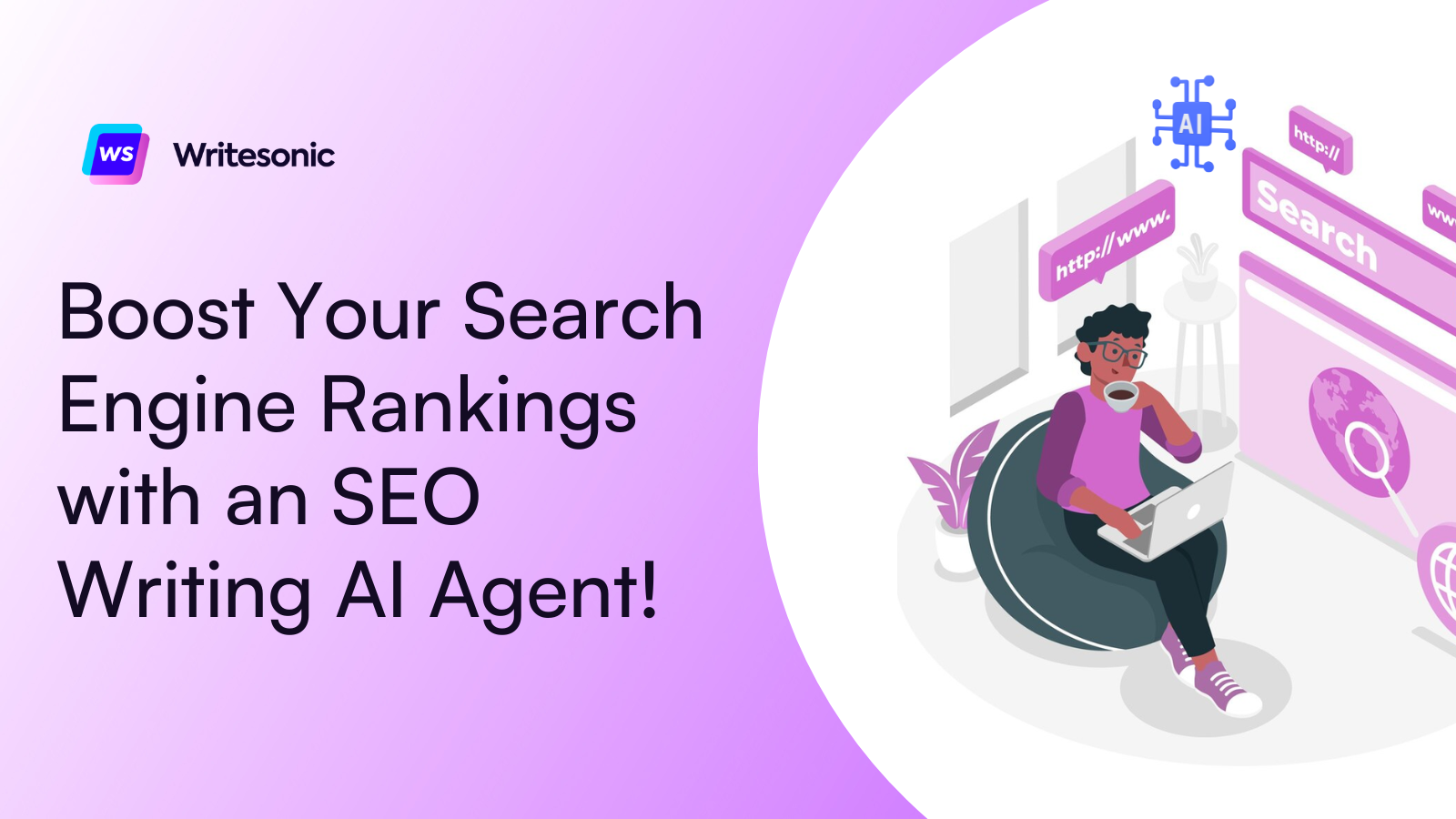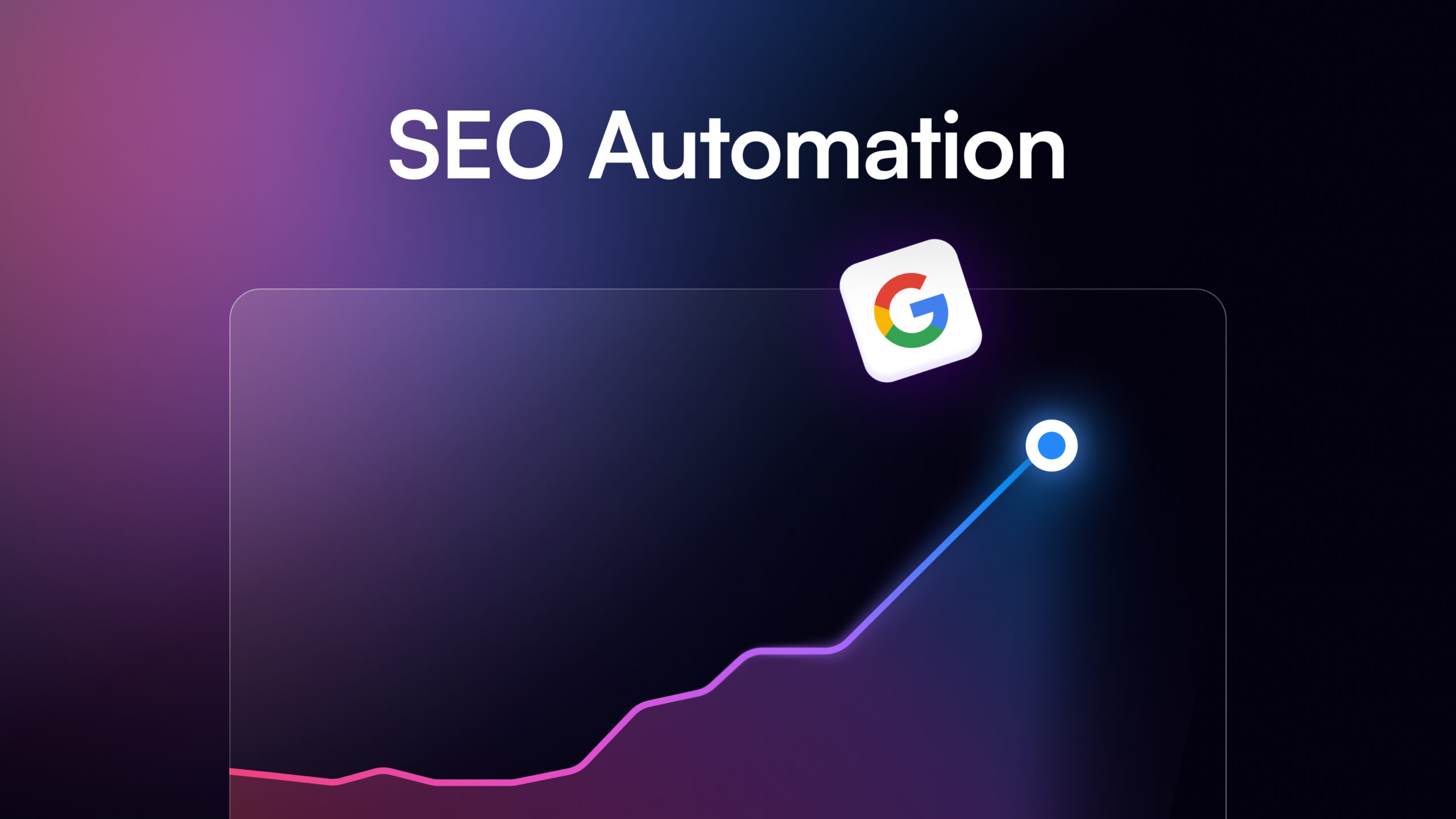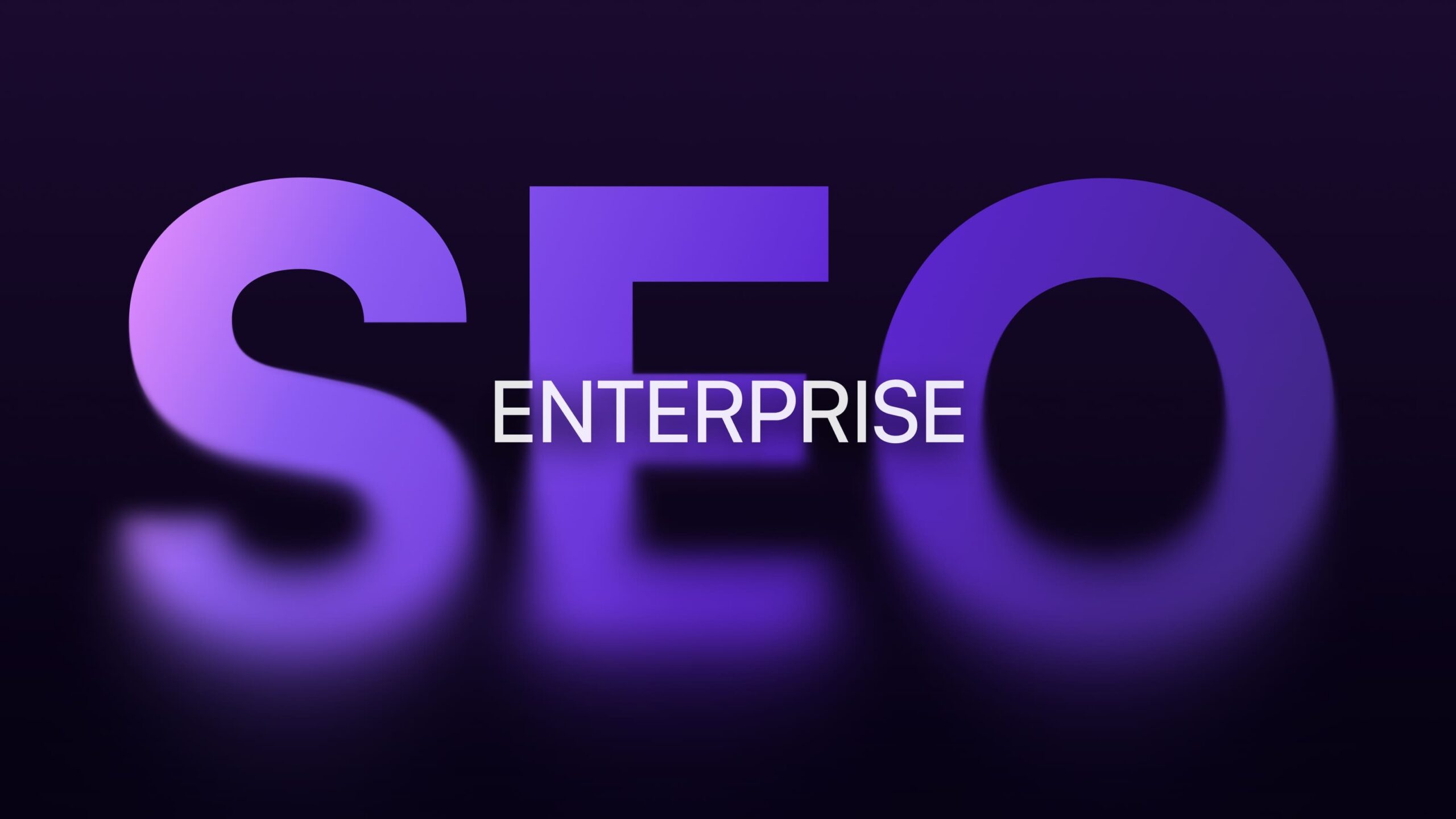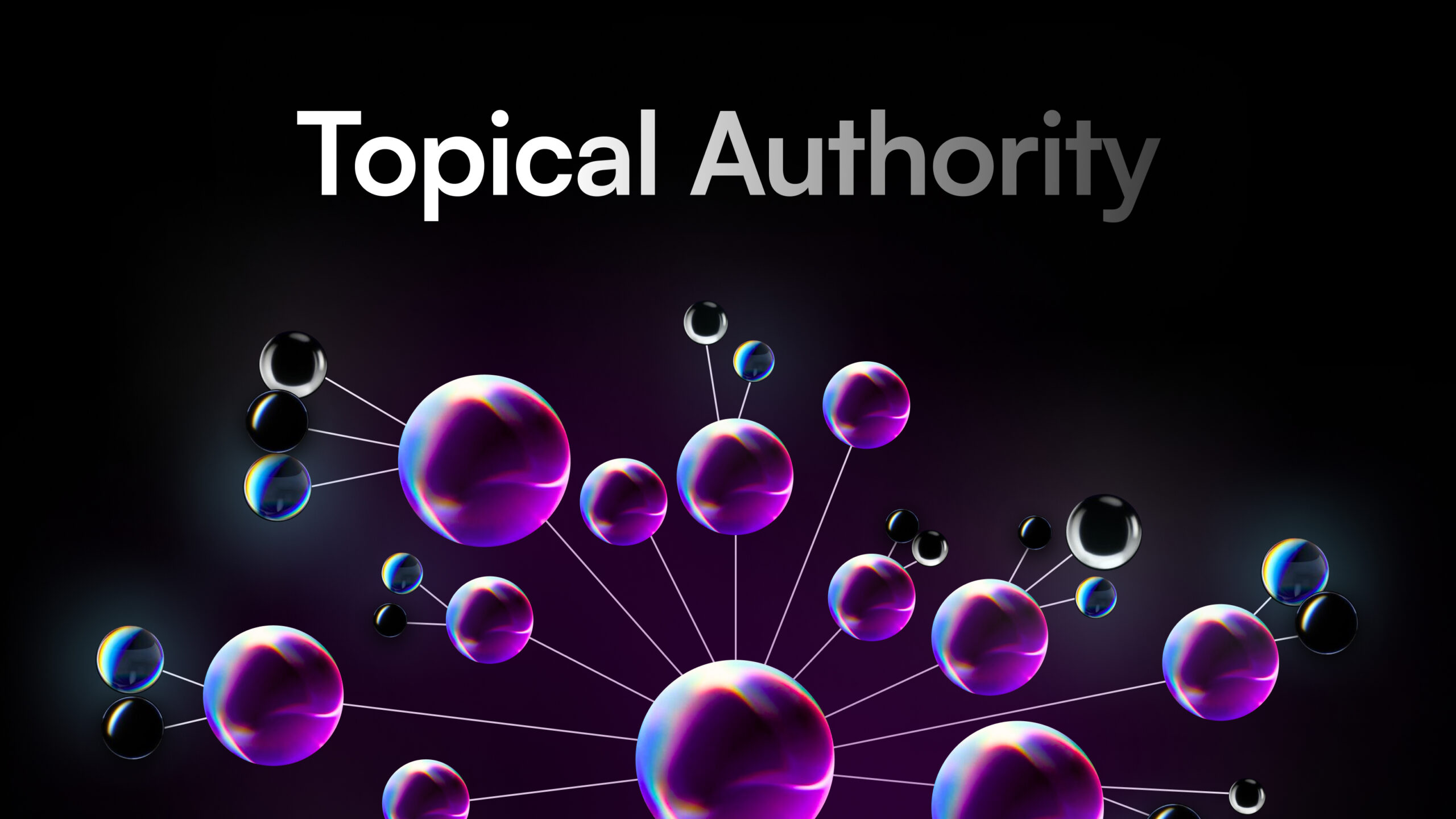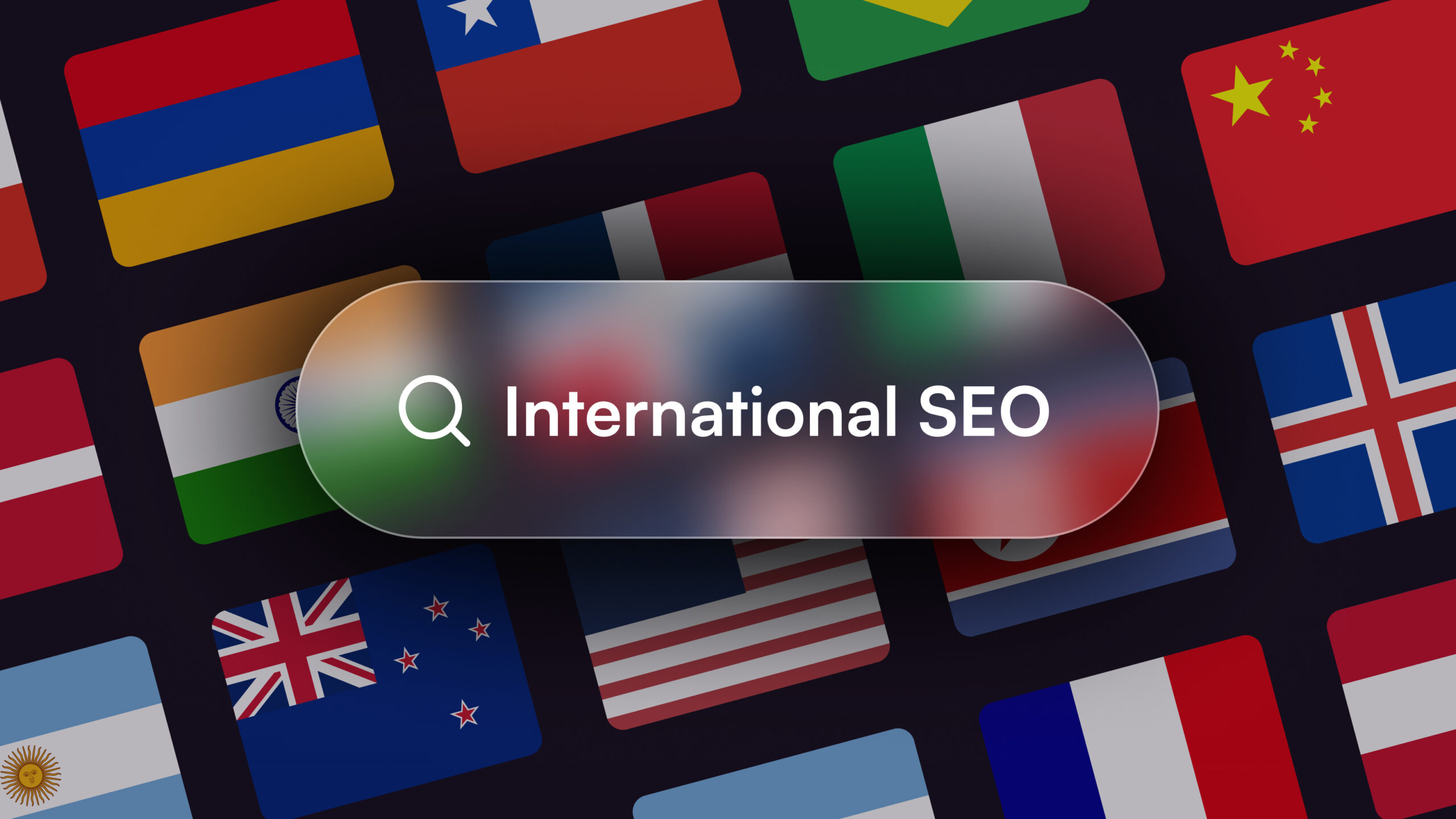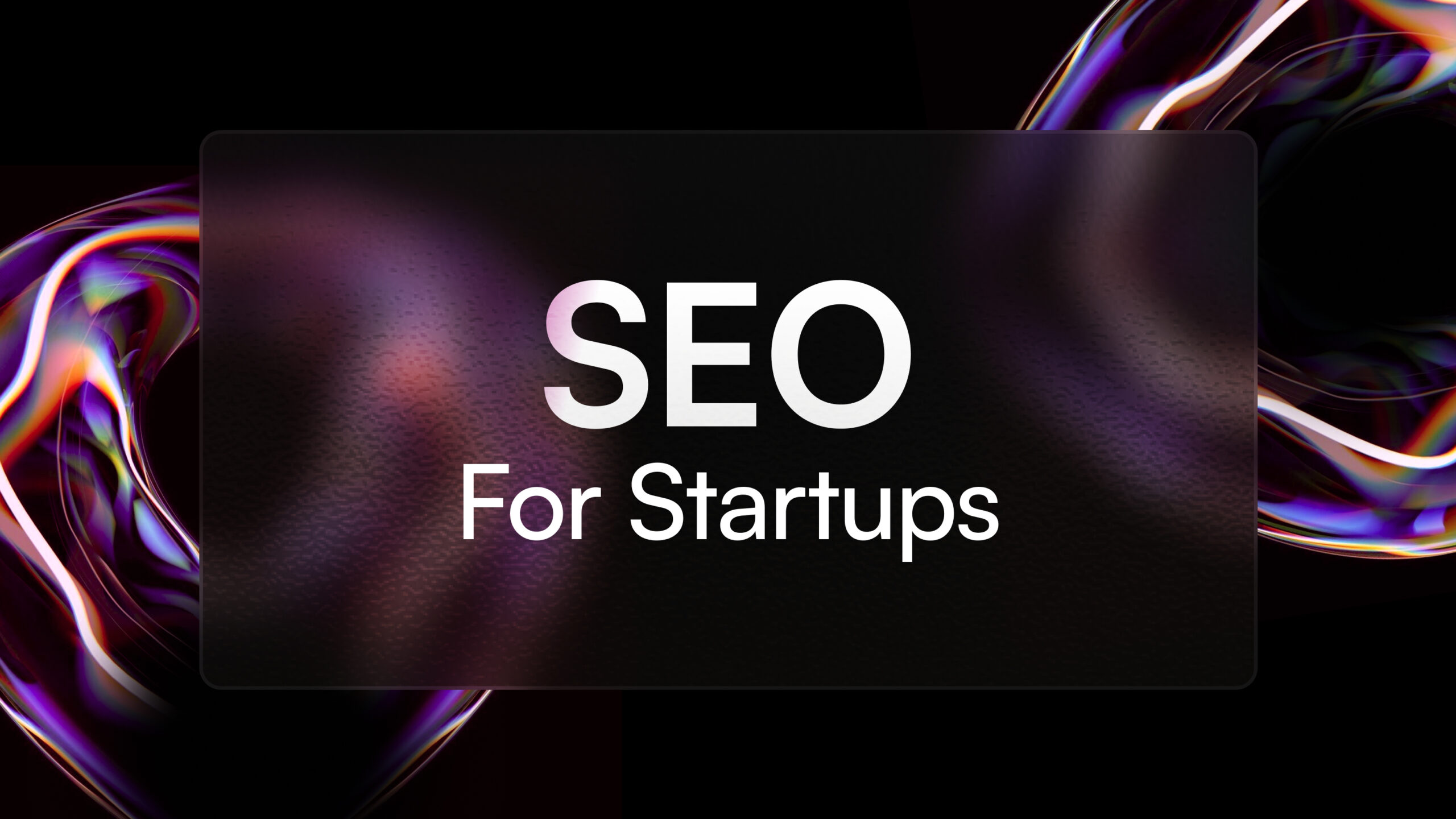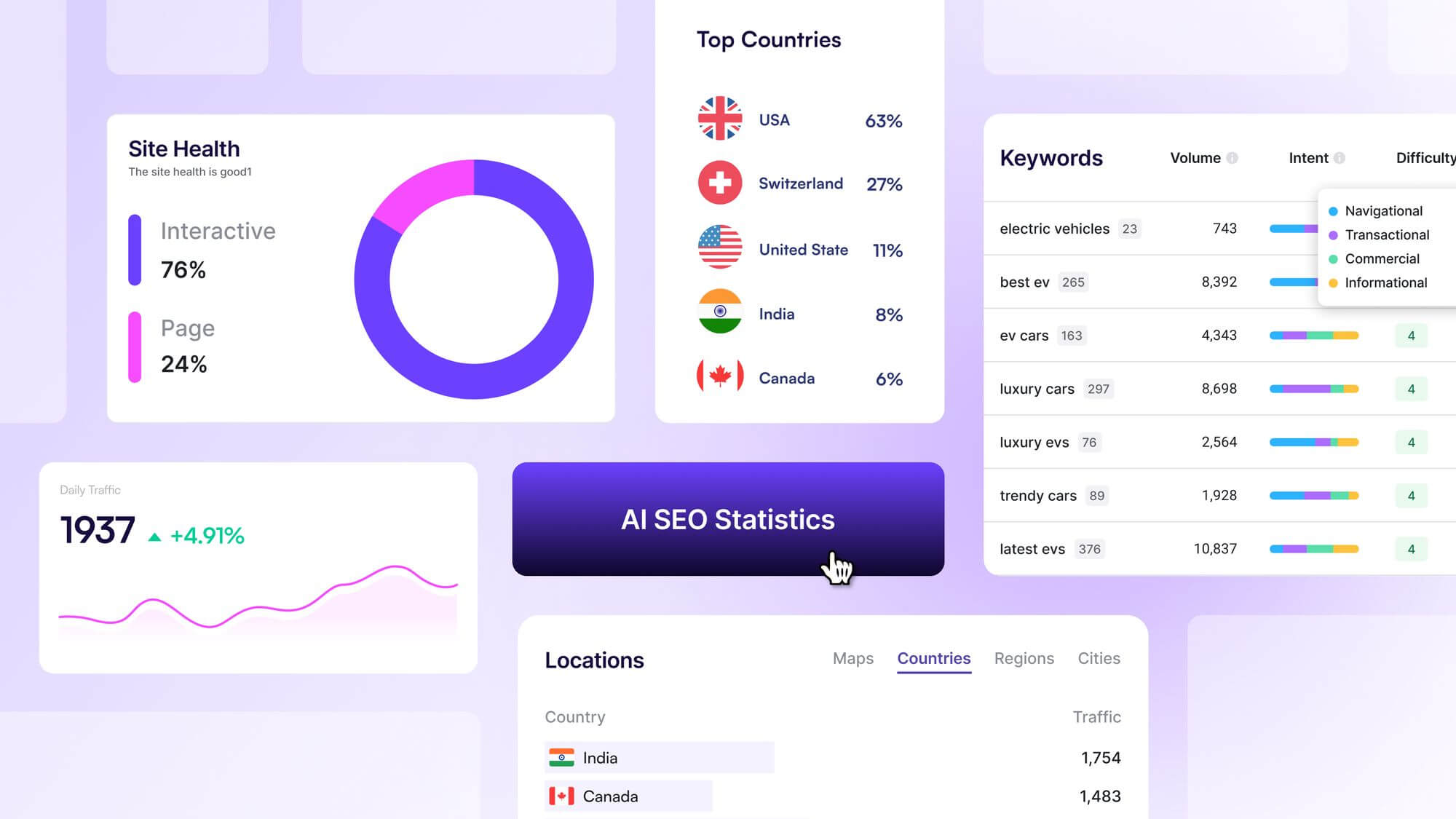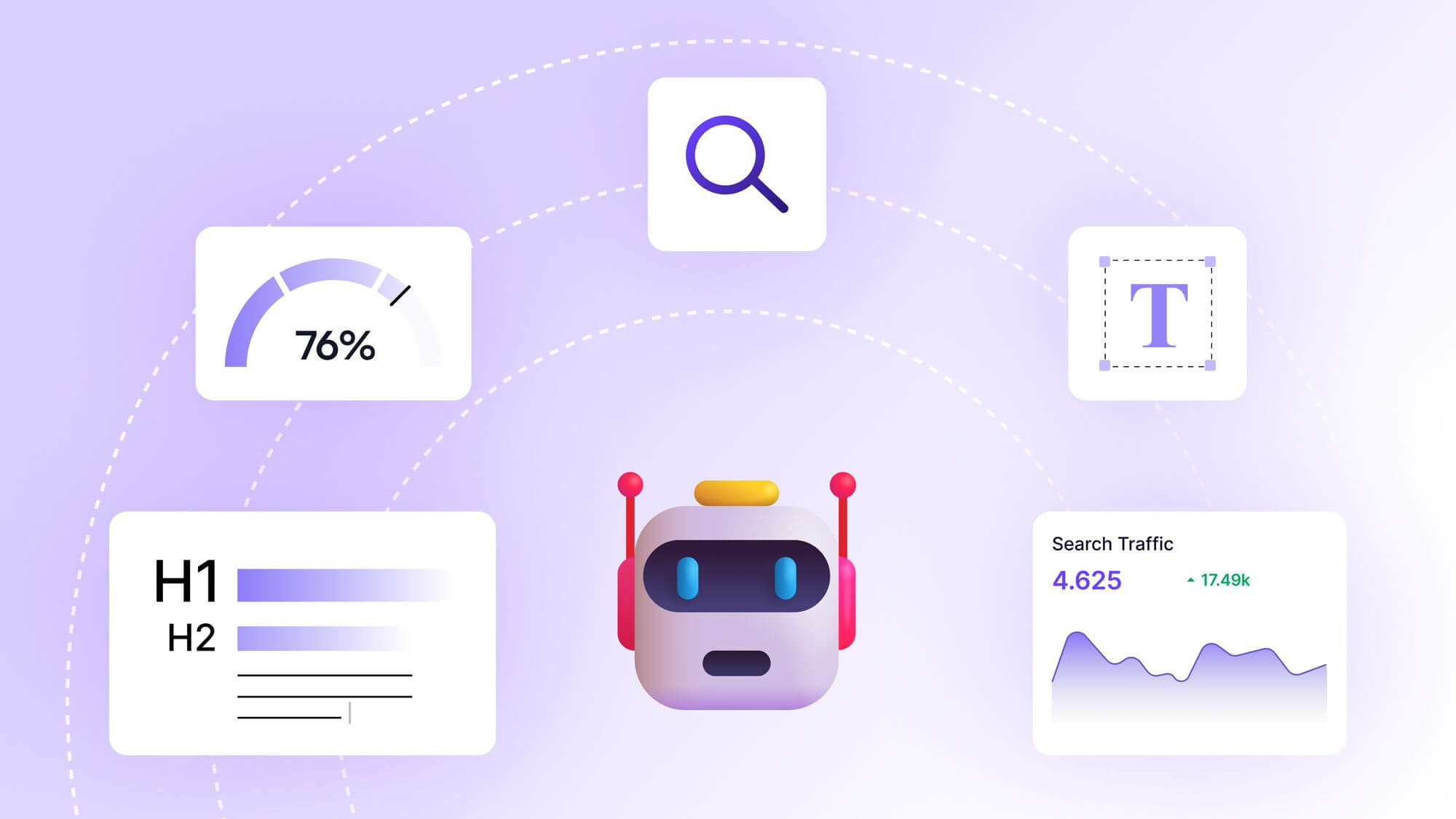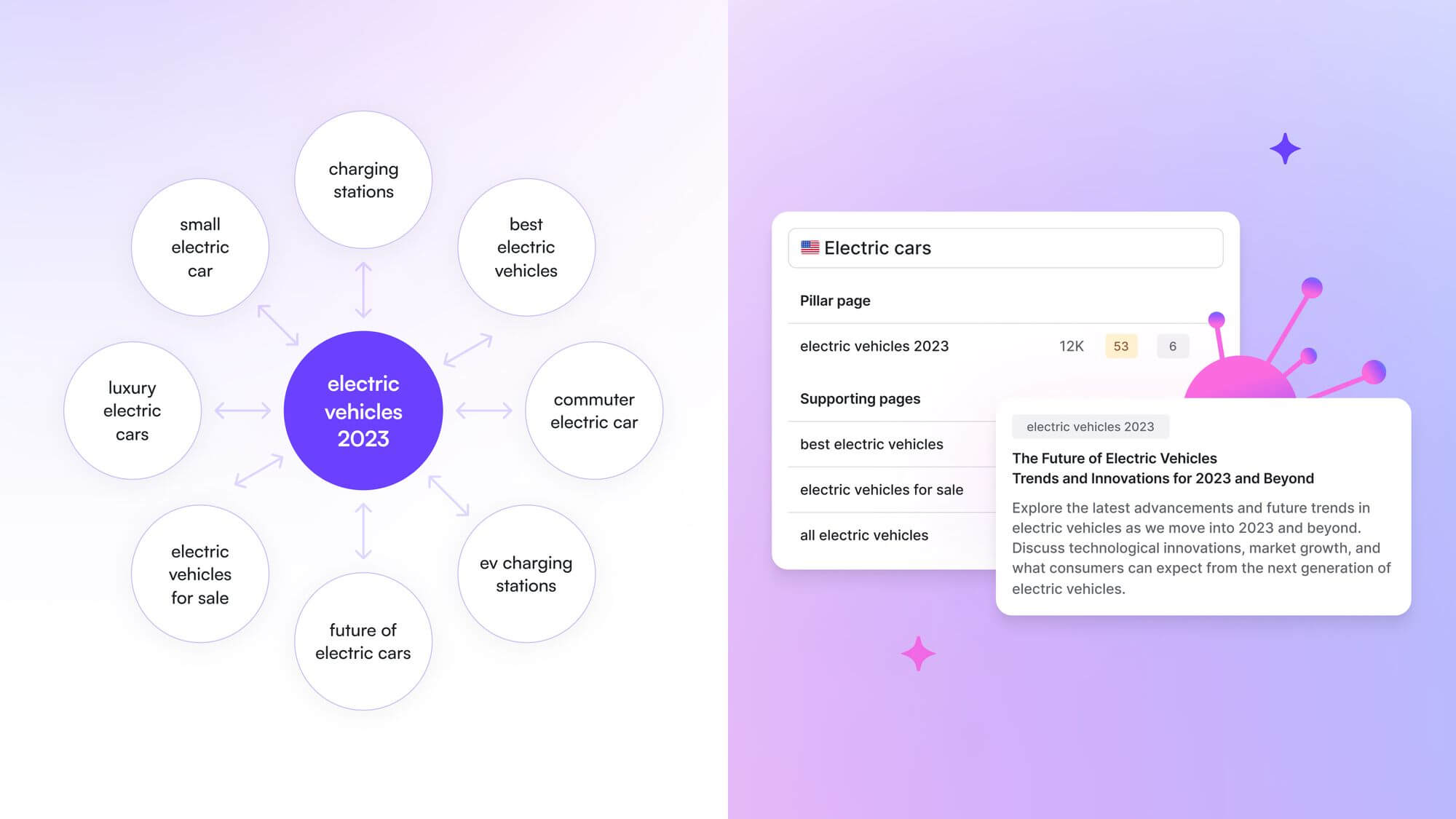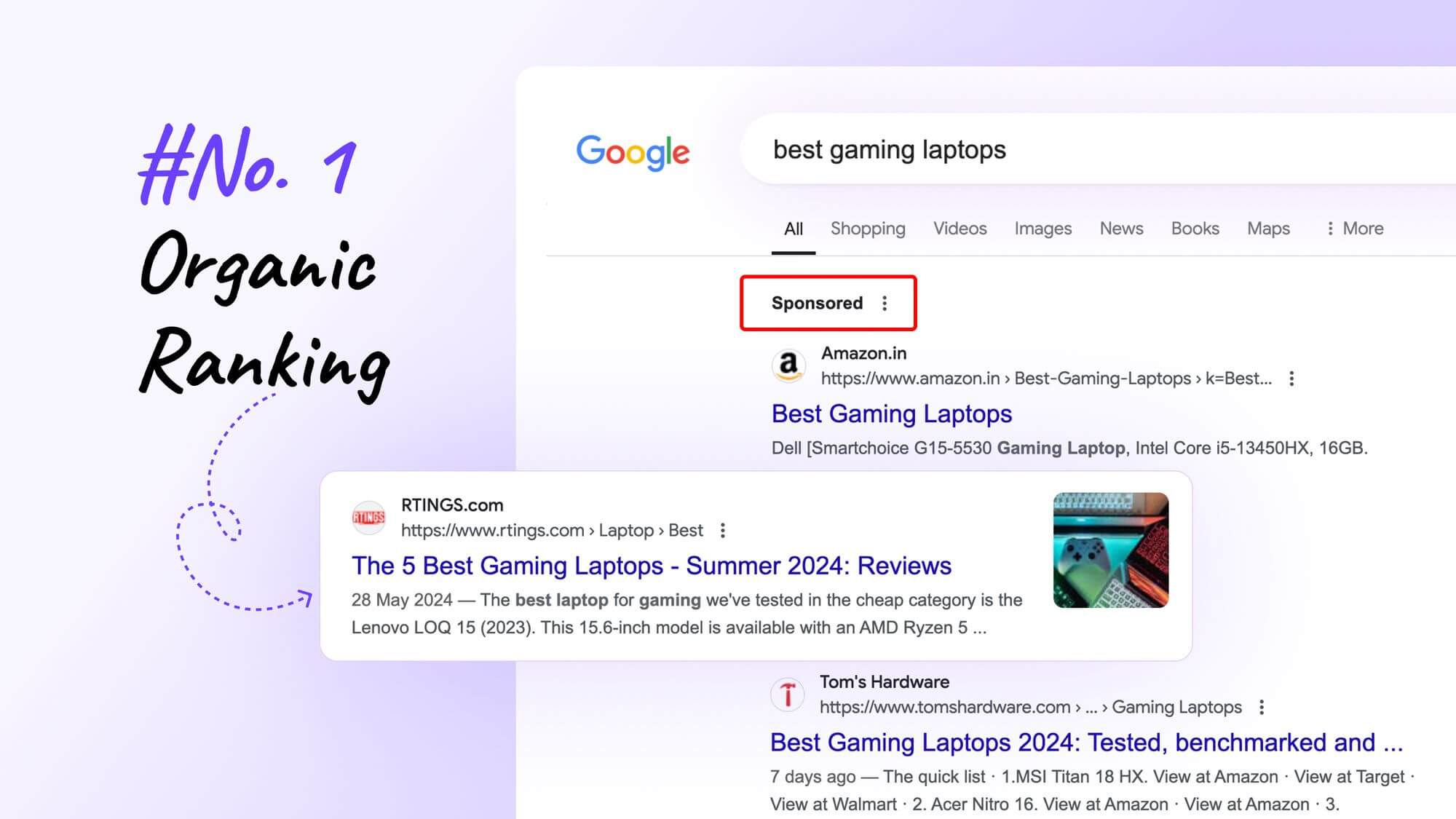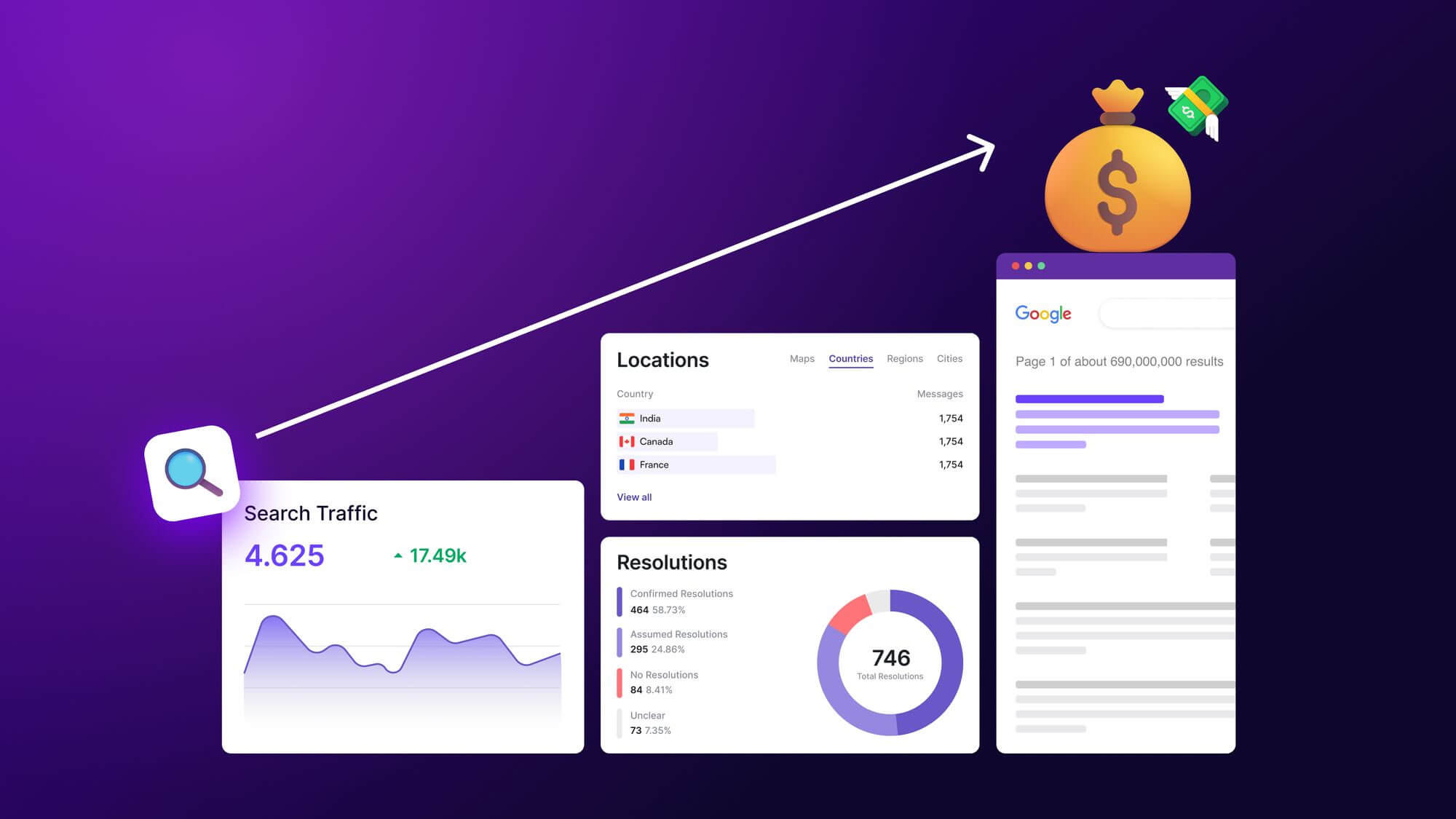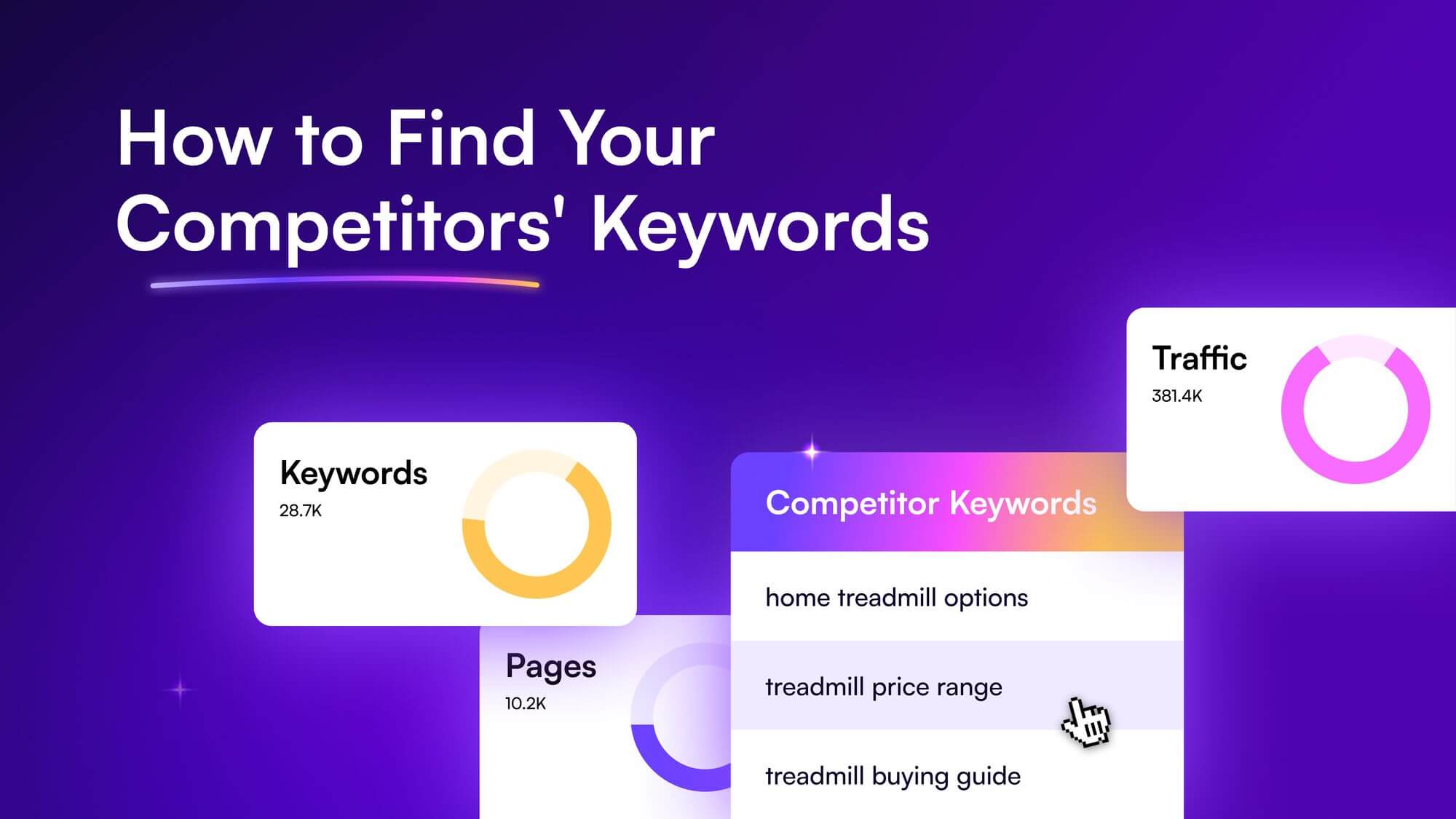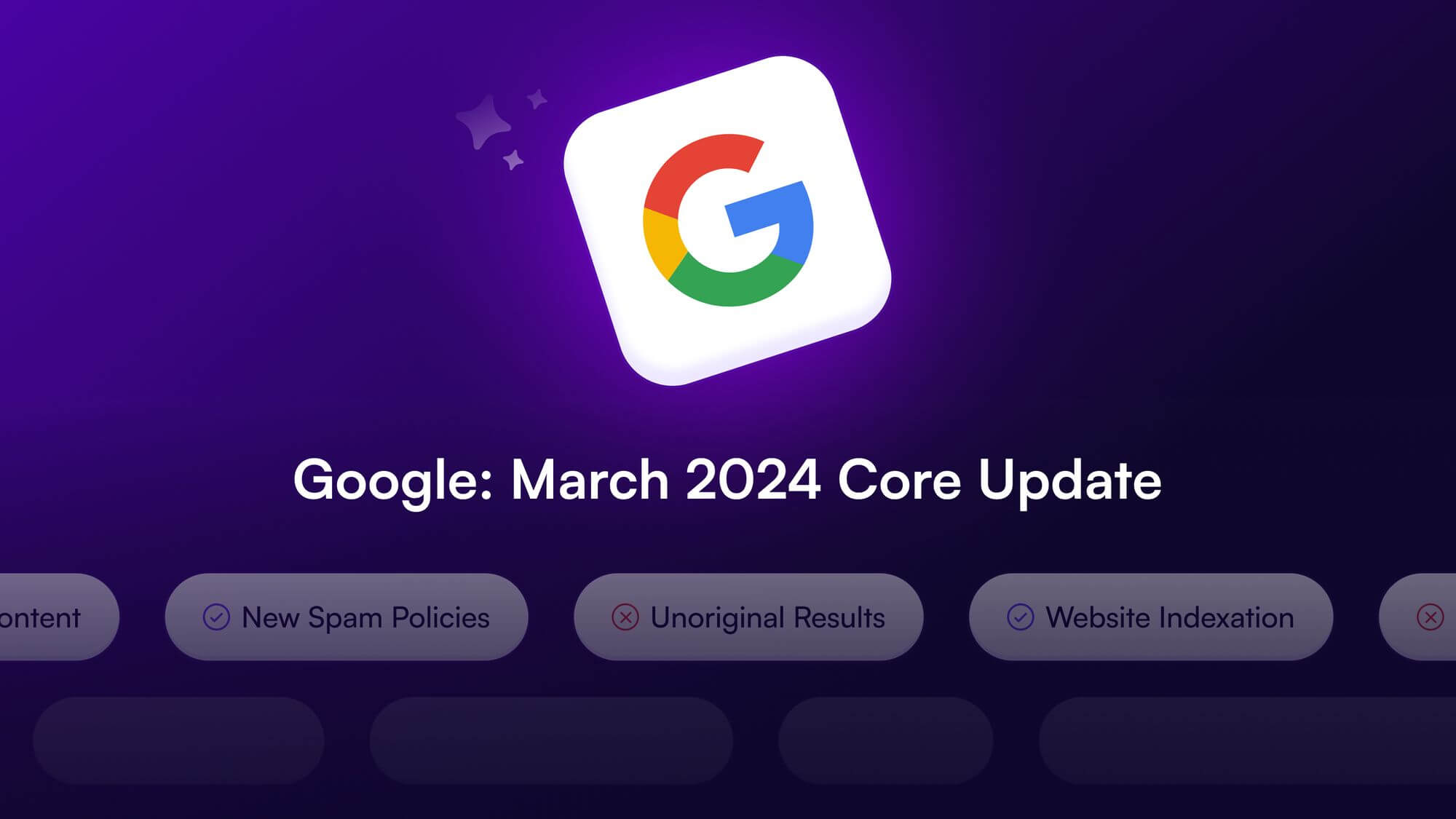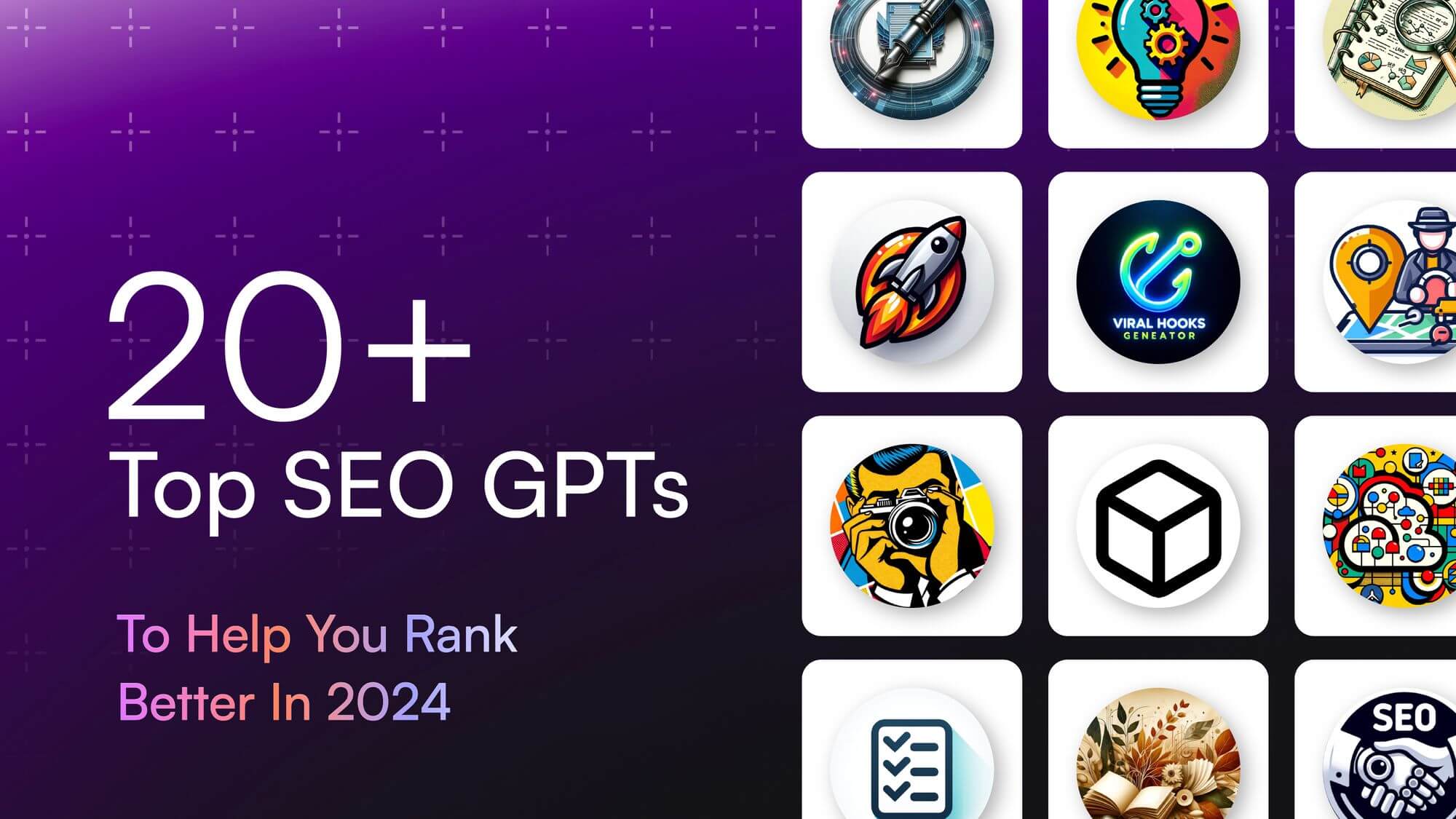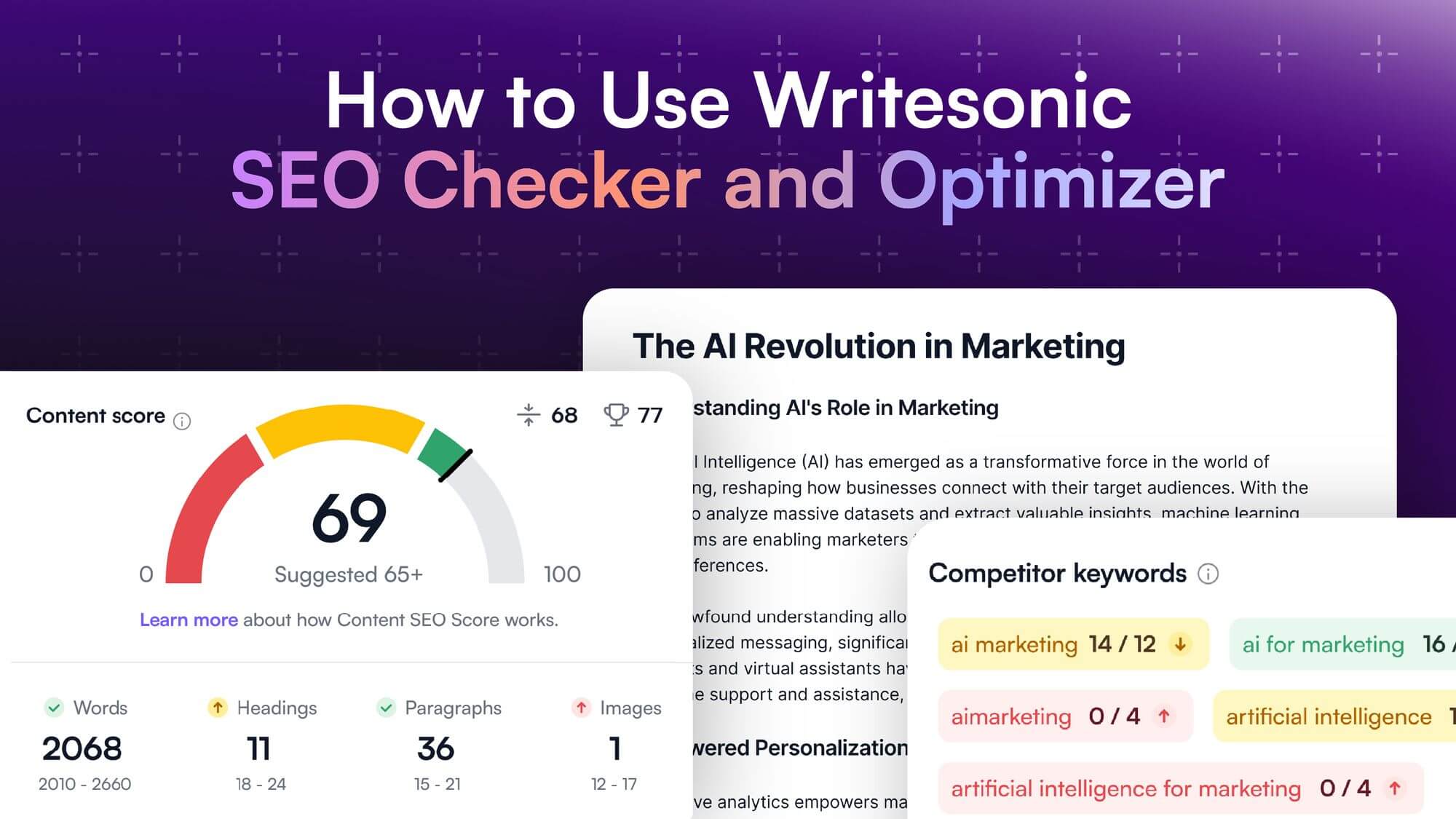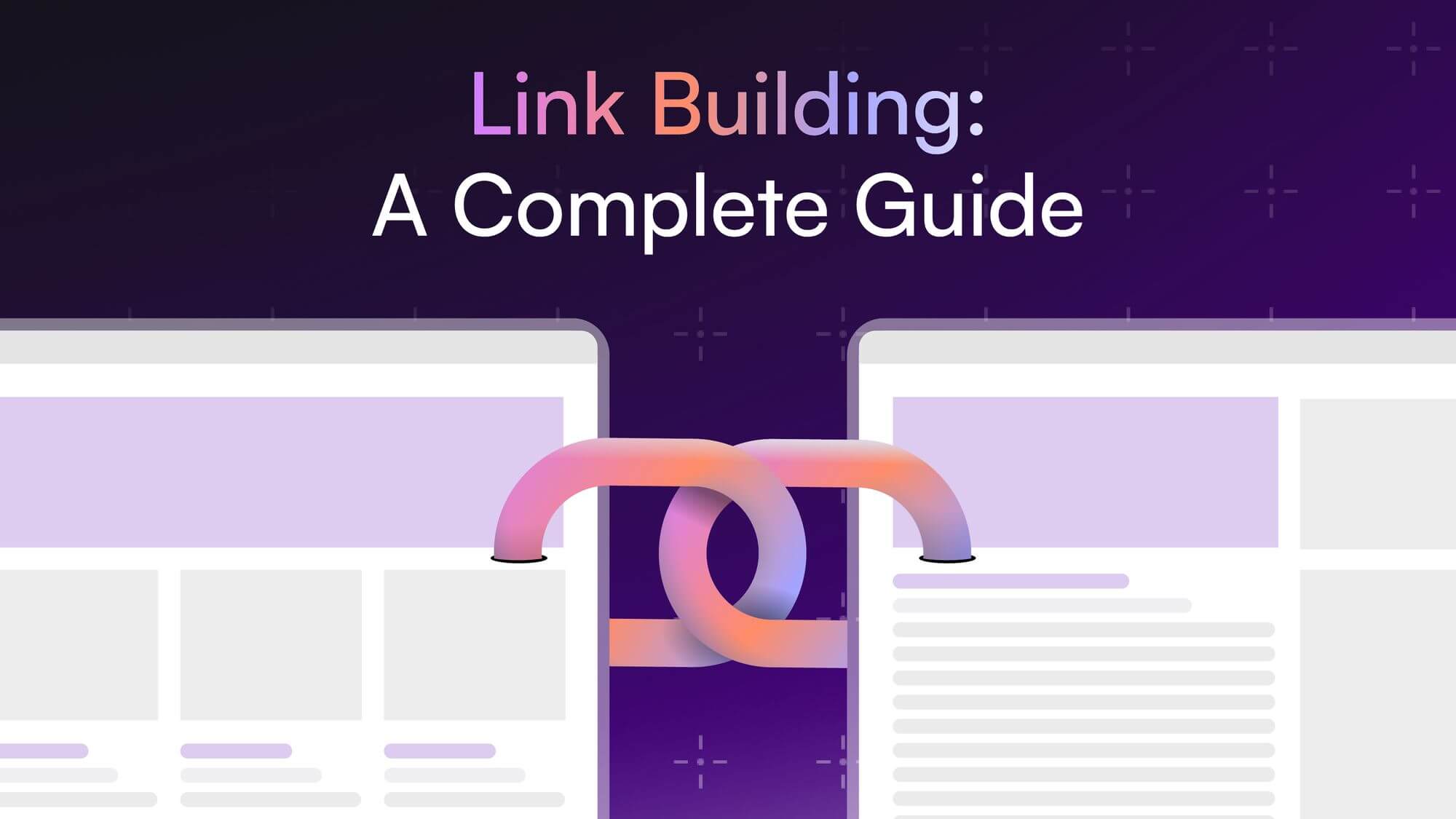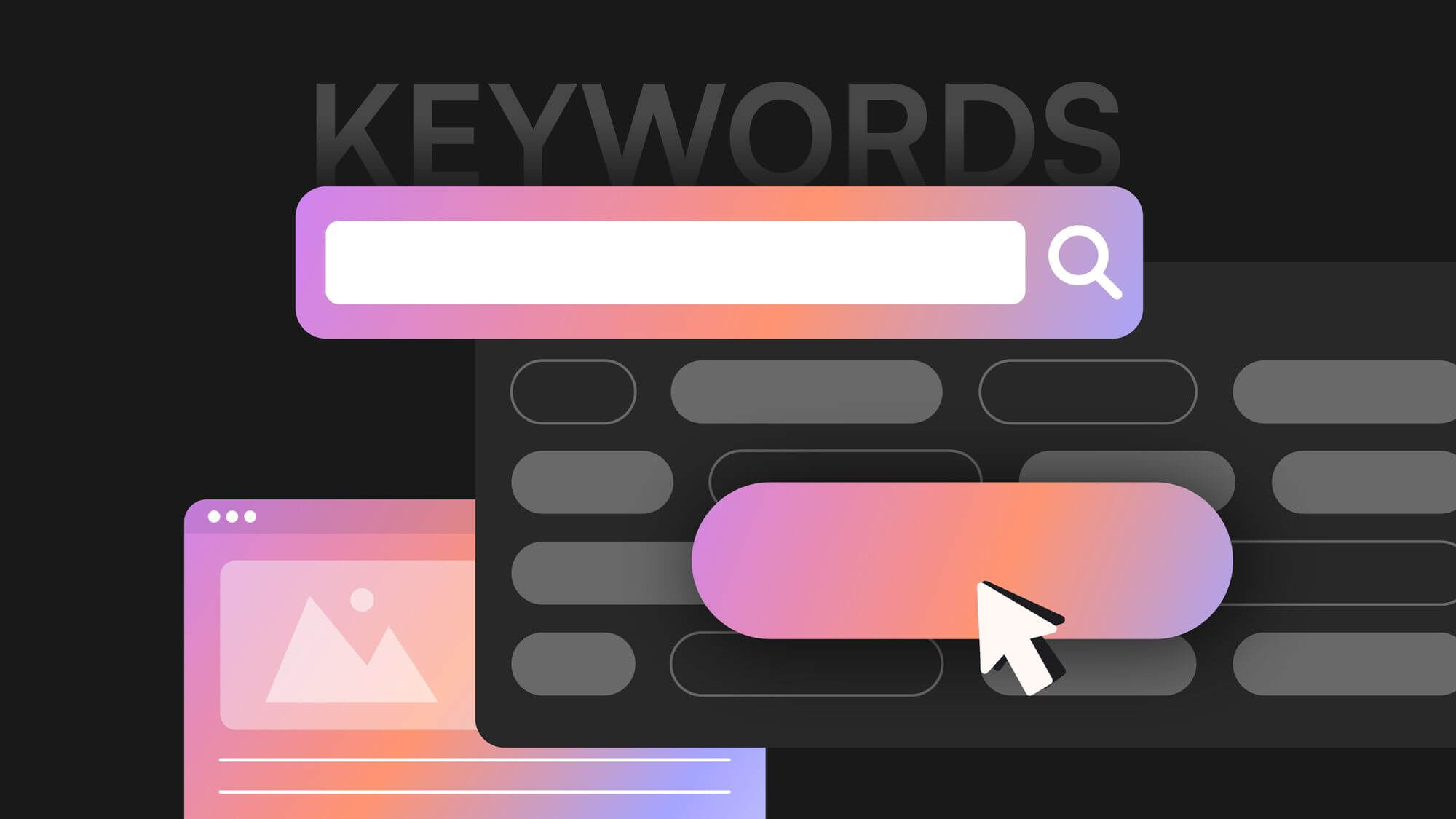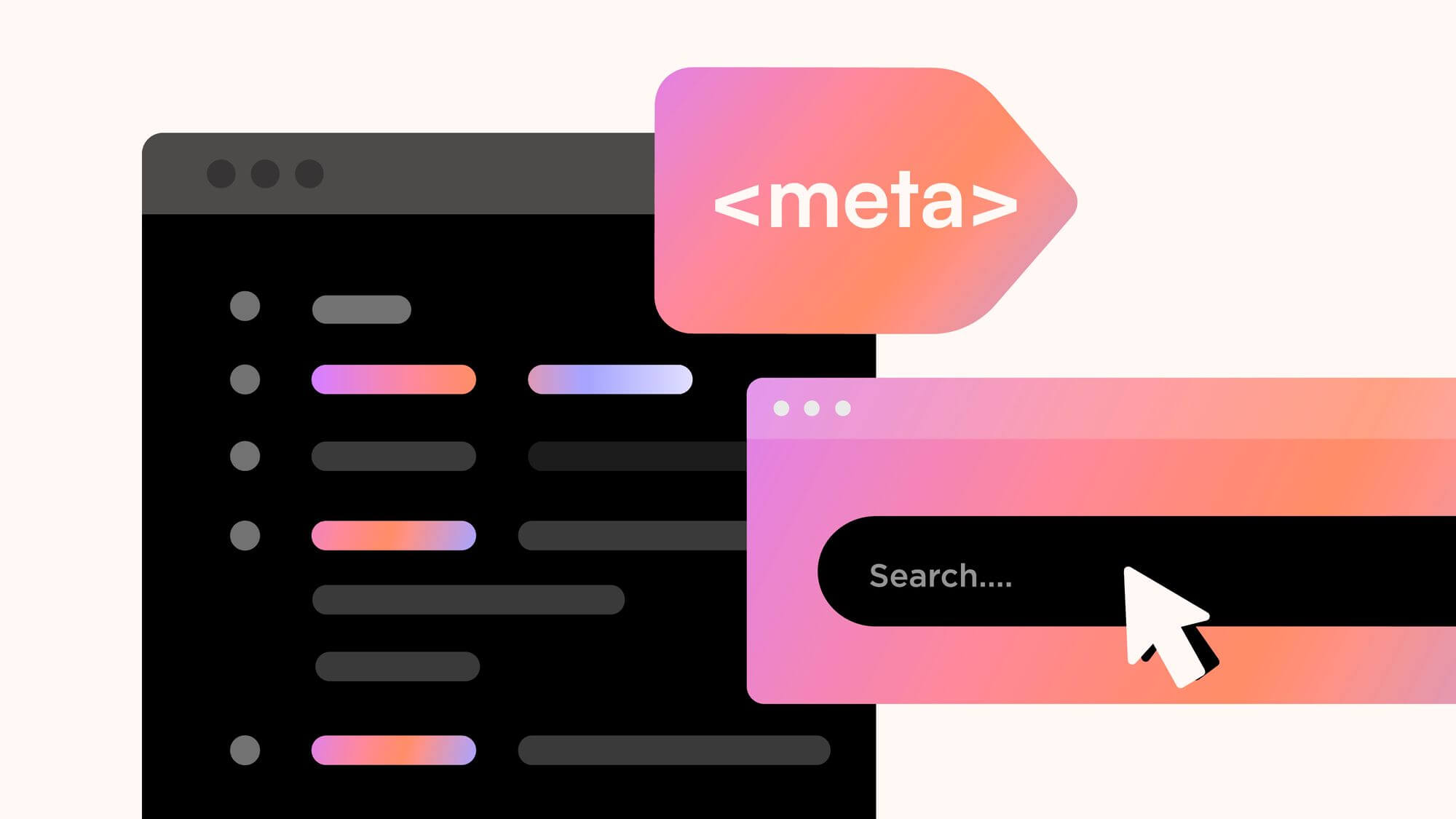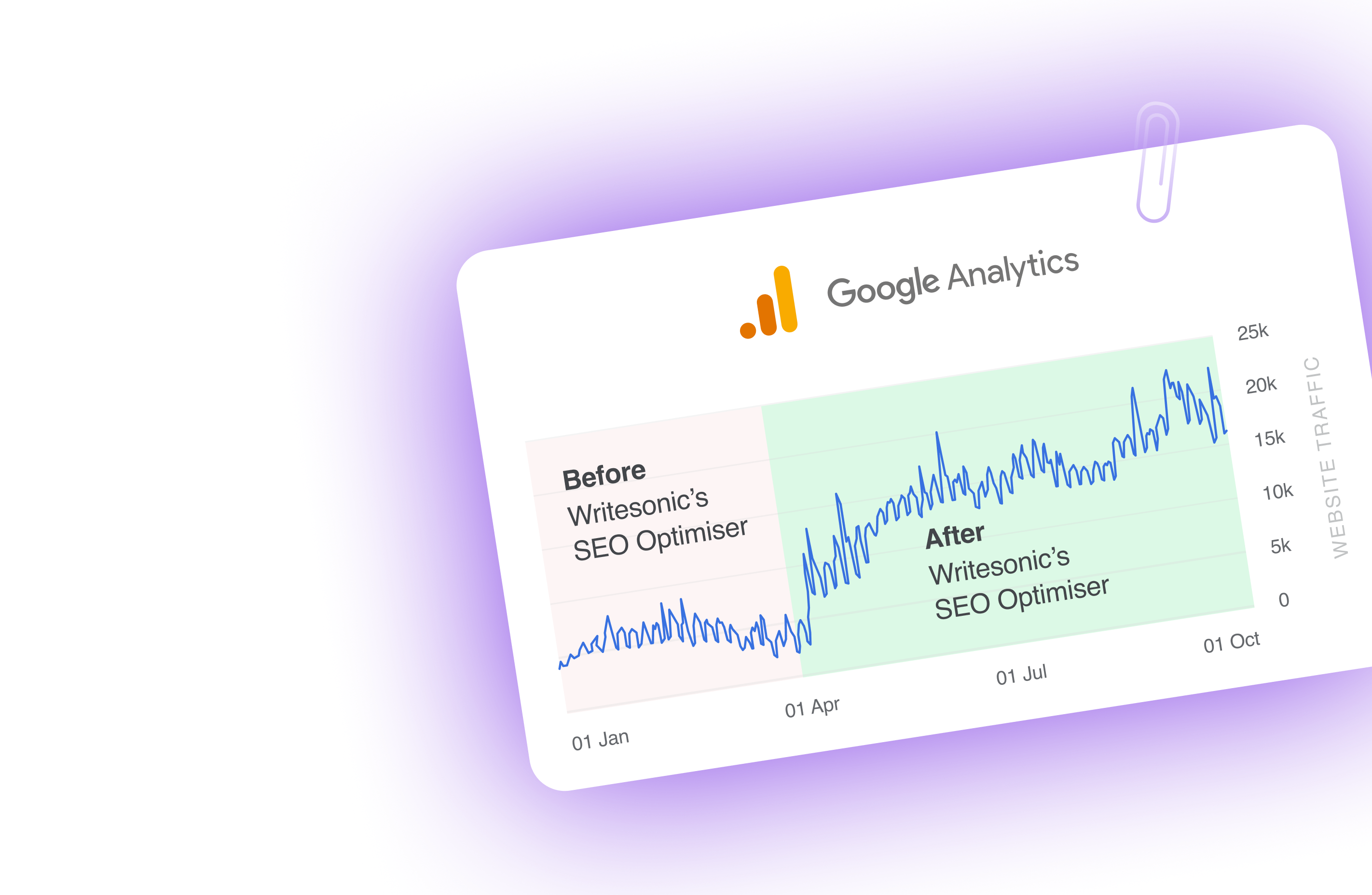For years, “SEO” basically meant “optimize for Google.” If you nailed your Google ranking, you could rest easy. But SEO trends in 2025 are a whole different reality.
People ask ChatGPT or Perplexity for product recommendations, watch “how-to” Reels on Instagram or TikTok, skip Stack Overflow for coding fixes via Claude or Cursor, and sometimes never even glance at Google’s main results. Meanwhile, Google itself has introduced AI Overviews, drastically changing how many queries are answered up top—often with fewer opportunities for organic clicks.
This guide explores why SEO is mutating into “Search Everywhere Optimization,” how it impacts your content strategy, what role AI Agents (end-to-end SEO automation) will play, and the concrete steps you should take to keep your brand visible across the ever-expanding search landscape.
SEO Trend #1: The Fragmentation of Search
Not “One Search Engine” Anymore
- Google remains massive but now faces competition from AI chat platforms like ChatGPT with search, Perplexity, and short-form video platforms where “search” is more about recommended feeds.
- E-commerce queries often start (and end) on Amazon. Users read reviews, compare specs, and buy—no Google needed.
- Social & Video: Many how-to or lifestyle questions go straight to YouTube, TikTok, or Instagram Reels. People want quick answers in a format that’s entertaining and easy to follow.
AI Overviews on Google & Bing
In 2025, we see AI Overviews at the top of SERPs. For example, around 30% of Google queries display them, but for problem-solving queries, that number can spike to 74%. This is not limited to Google alone; Bing has introduced AI chat overlays that produce similar “instant” summaries or references. If your site is recognized as an authority on a specific question, you might get cited—but if not, you might be relegated below a big AI box that answers the query with zero user clicks.
“Artificial intelligence would be the ultimate version of Google. The ultimate search engine that would understand everything on the web. It would understand exactly what you wanted, and it would give you the right thing.” – Larry Page, Co-founder of Google
SEO Trend #2: The Move Away from Stack Overflow & Old Forums
Dev Queries Now Go to ChatGPT, Claude, or Cursor
Stack Overflow used to be the go-to for coding questions. But with AI-based searches becoming an SEO trend in 2025, many developers skip Stack Overflow and head straight to ChatGPT or Claude to get code snippets or debugging help. Tools like Cursor and GitHub Copilot integrate AI suggestions right into the coding environment, so devs hardly need to open a browser tab at all. If your site once thrived on dev traffic, you might notice a decline in direct visits from “how to fix X in Python” queries. The user might see a ChatGPT-coded snippet referencing your approach but never actually click through.
Implication: If you produce coding or developer-centric content, you must ensure it’s recognized as authoritative so these AI tools can reference your domain. That might mean clarity, thorough examples, and up-to-date technical knowledge that AI scrapers find credible.
Forum-Style SEO Is Shifting
Similarly, old Q&A or forum-based SEO is less prominent if the majority of questions are answered in chat-based interfaces. Some specialized communities remain (e.g., big subreddits, niche Slack communities), but the casual user might now rely on an AI chatbot. SEO for Q&A content must adapt by ensuring your brand is the authoritative voice that AI chat references for deeper or specialized topics.
SEO Trend #3: The Explosion of Video Platforms as Search Engines
TikTok & Instagram for Quick Demos
Millions of people (particularly Gen Z) treat TikTok or Instagram Reels like a search engine, typing a query or simply scrolling the feed. They watch a 30-second demonstration or review, get the answer, and move on. They never typed “how to X” into Google.
- TikTok even extended its video descriptions from 300 to 2,200 characters to boost “search” potential.
- Instagram Reels also improved keyword searching but still heavily relies on the recommended feed, which surfaces content based on watch time, engagement, and user interests.
Action: Short-form videos define the future of SEO in 2025. If your brand’s audience is on these short-form platforms, produce short, punchy, truly helpful content as an SEO change. Use relevant text or hashtags to help the algorithm categorize you, but also rely on hooking viewers in the first seconds.
YouTube: Long & Short
YouTube remains the second-largest search engine behind Google. But it’s not just about 10-minute tutorials. YouTube Shorts competes with TikTok for short-form eyeballs. In both long-form and short-form, engagement signals—watch time, likes, comments—are crucial for ranking or recommendation.
Cross-Benefit: YouTube videos often surface on Google SERPs as well, especially for how-to queries. So a well-made “how to fix a leaky tap” video can rank on YouTube and appear as a top suggestion on Google’s main SERP or AI Overview. That’s multi-channel leverage.
SEO Trend #4: E-Commerce: Amazon & Beyond
Amazon as the Default for Product Search
For many product queries, especially consumer goods, Amazon is the first stop. They type “best home espresso machine” into Amazon’s search, read top reviews, compare star ratings, and buy.
Amazon’s internal ranking system is effectively an SEO environment in its own right, factoring in keywords, images, bullet points, sales velocity, and average rating.
Tip: If you sell products, ignoring Amazon SEO might be your biggest miss. Ensure your listing is thorough, uses relevant search terms, includes well-lit photos, and maintains strong user feedback—these signals can shoot you to the top of Amazon’s results.
Related resource: Learn how to boost SERP rankings using AI agents for e-commerce SEO.
Social Commerce & TikTok Shop
Beyond Amazon, platforms like TikTok Shop or Instagram’s in-app checkout blend social discovery with direct purchases. A single viral short video can yield immediate product sales without the user ever jumping to Google to “check reviews.” Brands that adapt by offering frictionless purchase flows on these apps might see major gains.
SEO Trend #5: AI Overviews & Zero-Click: The New Normal
How Google & Bing Show AI Summaries
Google’s AI Overviews might appear for around 30% of queries in 2025, up from earlier adoption. They can jump to 74% for “how to fix” or “how to do” type problems. ChatGPT with search also provides a big “answer box.” Both might reduce the need to click on a site if the short snippet satisfies the user’s question.
Impact: As the future of search engines changes, we can see fewer organic clicks for sites that used to get traffic on these queries. The user might read the snippet or chat answer and move on. This is why brand presence (and direct brand searches) matter more than ever. People will specifically visit your site if they know and trust you.
Being the Quoted Source
- If the snippet or AI box references your domain, that’s brand exposure. But does it translate to visits? Possibly less so than a top organic listing.
- Some SEO pros run manual checks: they type typical user queries into ChatGPT, Claude, or Perplexity to see if their brand is mentioned. This acts like a “new ranking check.”
Key Tactic: Format content with direct Q&A sections or structured paragraphs that an AI engine can quote. If the engine sees you as the best concise answer, you might get the mention.
“Search Everywhere Optimization”: The Core Principles
Not “Be Everywhere,” but “Be Where Your Audience Is”
From blogs and forums to social media and paid ads — there are countless platforms where you can build an online presence. But does being on every other platform yield a greater ROI and better results? Not really. Instead, it translates to a waste of resources for no real results.
Even if SEO trends in 2025 are directed toward the diversification of search platforms, being on every platform shouldn’t be a priority. Rather, you need to be able to identify platforms where your target audience is and hyper-optimize content for that particular platform.
That’s crucial.
If your target demographic is on LinkedIn for B2B topics, or you want to target dev communities that already rely on ChatGPT references, that’s where you focus. If you sell consumer goods to a younger crowd, short-form video platforms and Amazon might matter most.
Or if you’re local, you might need strong coverage on Google Maps, Yelp, or voice assistants like Siri that reference local data.
Creating long-form articles or spending on paid ads doesn’t translate to better ROI when your audience relies on user reviews or influencer content for information.
Addressing Intent Across Channels
While selective content creation and optimization is important, it doesn’t mean you stop only at one channel. Most of the time, consumers search for products or content across channels before settling on a brand or product to purchase.
Suppose you sell running shoes. People might watch an IG Reel about “the best shoes for marathon training,” check Amazon for top-rated brands, see if your brand is recommended by ChatGPT, or watch a 10-minute YouTube comparison.
Identifying the channels involved at various stages of the buyer journey and creating content for each of them is crucial. By covering each stage with the right content (short videos, Amazon listing, Q&A blog post, etc.), you ensure you’re present no matter how or where they search — without trying to blindly cover every possible platform.
Brand Trust Over Traffic Volume
As zero-click results become an SEO trend in 2025, raw site hits can drop, making it harder to drive traffic through organic search results. The workaround? Building a brand that people trust and recognize over any other content.
In 2025, building brand trust ensures that even if an AI Overview partially answers a user’s question, the user specifically looks for or requests your domain to explore more.
How do you do that? By focusing on E-E-A-T across all content to make it valuable for both your audience and search engines. E-E-A-T (Experience, Expertise, Authoritativeness, Trustworthiness) extends beyond Google to all search experiences.
Here are some tips to implement it:
- Showcase Real-World Experience: Develop “behind the scenes” content, write about your working process, use your experience to cite examples.
- Demonstrate Expertise: Publish guest posts by experts from your industry, invite experts to contribute to videos.
- Build Authoritativeness: Collaborate with other well-known brands, host events, build partnerships.
- Enhance Trustworthiness: Create a transparent customer feedback system, display testimonials on websites, invite influencers and experts to review products.
Deeper Look at AI Agents for SEO Workflows
SEO trends in 2025 are pointing towards more AI automation and less manual work, not just on the search part but also in the workflow — that’s undeniable. That also means a shift from the generic single-response AI chatbots to the more sophisticated AI agents that can handle end-to-end SEO workflows.
Here’s how they make a difference:
What Are AI Agents?
Rather than single-response chatbots, AI Agents are digital “specialists” that can handle multi-step SEO tasks—analyzing data from multiple tools, competitor research, and final recommendations—just like an experienced SEO manager would, but faster.
“AI agents will become the primary way we interact with computers in the future. They will be able to understand our needs and preferences, and proactively help us with tasks and decision making.” – Satya Nadella, CEO of Microsoft
Take the newly released Deep Research Mode by OpenAI, for example. For any given query, it automatically searches the web, “reads” the articles and resources, and creates comprehensive reports by analyzing data from relevant sources.
It does all this in minutes — something that would take hours of effort manually.
In 2025, we’ll see such new AI agents emerge for all steps of the SEO process, from keyword research to content creation and publishing.
Key Steps of the AI Agent workflow:
- Understand your request (“Find easy-to-rank keywords in positions 11–20”).
- Plan how to gather data (SERP analysis, competitor domain checks, content gap reviews).
- Execute each step automatically and compile the results into two documents: a “Research Analysis” and a “Final Roadmap.”
Replacing Hours of Manual Work
Typically, an SEO team might spend days:
- Logging into rank trackers or analytics, exporting data.
- Checking competitor pages for content length, keyword usage, or domain authority.
- Combining everything into a blueprint for on-page improvements.
With AI Agents, it’s down to minutes. That means you can pivot quickly whenever a new trend appears—like a sudden spike in Bing Chat usage for your niche or a trending TikTok hashtag related to your product.
Learn more about AI agents and how they work with our detailed guide “What Is an AI Agent?”
SEO AI Agent: Writesonic
At Writesonic, we have introduced the SEO AI agent that’s designed to automate your end-to-end SEO workflow. It’s connected to the necessary SEO tools — Ahrefs, Google Search Console, Google Keyword Planner, Reddit, and more — generating AI-powered insights but backed with real-time data, unlike your traditional AI chatbots.
Say you want to “analyze your top five competitors.” Your traditional SEO process might look like this:
- Check SERPs for multiple keywords to identify top competitors.
- Use a tool like Ahrefs to find basic information like the DR, Organic Traffic, and Backlink Profile of the competitors.
- Figure out their content and SEO strategy.
- Use another document or sheet to maintain all the data and sort through it manually.
That’s a process that easily takes a few hours, and is still prone to inaccurate interpretations due to all the manual steps involved.
Now, conducting the same analysis using an SEO AI Agent. The SEO AI agent gives the exact insights you require by treating the query as a multi-step process — all automated:
1. It identifies the SEO request: “analyze the top five competitors”
2. Determines the right tools for the task and calls the relevant APIs or tools (Eg: Ahrefs, Writesonic’s own tools, Google Search Console integration, etc..)
Notice how it goes through the exact same steps you would manually. First, it identifies the top competitors of writesonic.com. Then, it calls Ahrefs and other relevant tools to collect information such as the organic traffic, backlink profile, and top keywords of competitor websites.
3. Executes the required actions and generates a complete research report using the data.
This report includes all the data collected from the previous research step — something you’d do manually in an Excel Sheet or Google Doc.
4. Delivers the final strategy with minimal interventions required from your end.
Competitor overview, market position, and actionable insights for you to follow — insights that you would require additional expertise for, in the traditional process. But with an SEO AI agent, you not only get the data, but also get the analysis, all within minutes.
It’s like always having an SEO agency ready at your fingertips — but taking much less time and effort while saving costs and driving better results.
Read this guide to learn about Chatsonic, SEO AI Agents, upcoming updates and more.
Let’s look at some example use cases to learn more about how this works.
Example Use Cases
1. “Help me rank for [keyword].”
- Old Approach: ~10 hours of competitor analysis, tool-hopping, writing a strategy doc.
- AI Agent: Instantly fetches SERP data, competitor metrics, suggests on-page changes, etc., generating a final plan.
2. “Find easy wins on short video platforms.”
- Old Approach: Scroll competitor channels, track watch times, guess what’s working.
- AI Agent: Pulls publicly available data on competitor Reels or Shorts, identifies which topics or hashtags yield high engagement, and tells you where you can slot in.
The Quality Standard: AI Content vs. Human Oversight
Using AI to Scale Content
Search engines (like Google or Bing) have said AI-generated text isn’t automatically penalized—as long as it’s helpful, original, and user-focused. If you use AI for a first draft or for topic suggestions, then refine it with expert insight, which can yield a robust final product.
Original, Fact-Checked Material
Your best defense in an AI-saturated environment is to offer real expertise. Cite data, share personal experiences, or highlight brand values. Chat-based search engines or short-form feed algorithms can sniff out superficial content or repeated cliches. The more original your perspective, the more likely you’ll stand out—and possibly get cited in AI Overviews or recommended in user feeds.
Semantic SEO & Intent Mapping for 2025
Entities & Topical Coverage
Search engines are increasingly semantic, understanding synonyms and context. They also parse entire user journeys. If a user searches “Which electric vehicle is best for cold climates?” the engine or AI chat might look for deep coverage, not just one short paragraph. So your content must thoroughly address subtopics (battery capacity, preheating tech, recommended charging stations, etc.).
Action: Build pillar pages (in-depth guides) plus supporting sub-articles. Interlink them so an engine sees your brand covers the entire scope of “electric vehicles for winter conditions,” for example.
Structured Data vs. Advanced AI Understanding
While structured data (FAQ, HowTo, Product markup) helps standard search features, some experts predict an eventual shift to AI that can parse content without heavily relying on structured markup. For now, it’s best to keep using it, because it can feed not just Google’s results but also voice assistants or chat engines that look for clarity. Over time, advanced AI might become so good at reading raw text that structured data is less critical, but that’s not certain yet.
The Ongoing Importance of Performance & UX
Regardless of where traffic comes from, if your site or content frustrates users, you’ll lose. Core Web Vitals remain a Google priority, but user experience is vital across all channels. On short-form videos, hooking viewers in the first 3 seconds is the “performance metric,” and on Amazon, a poor image or unclear bullet points hamper conversions.
In short: Whether it’s load speed, mobile design, or watch-time retention, each platform demands you optimize for the user’s experience. Great content plus a great experience leads to deeper engagement and, ultimately, better “rank” in that platform’s environment.
Voice & Assistant SEO: Competing for the “Single Answer”
One-Answer Paradigm
Voice assistants like Siri, Alexa, or Google Assistant typically provide one or very few top answers. There’s no second page on Alexa. This “winner-take-all” dynamic can be harsh but yields big returns for whoever the AI picks.
Local SEO & Data Integration
If you’re a local business, making sure your data is correct on aggregator sites (Yelp, Apple Maps, Google Business Profile) is crucial to keep up with the SEO trends in 2025. Assistants often reference these data sources. If your listings are outdated, you’re effectively invisible. High average ratings and strong user reviews can nudge the assistant to pick you as “the best pizza place nearby.”
Pro Tip: Use consistent NAP (Name, Address, Phone) info across multiple directories. For voice queries like “Find me an Italian restaurant,” these personal assistants weigh location, rating, popularity, and brand cues.
Real-World Action Steps for 2025 SEO Success
- Conduct an Audience Search Audit
- Survey or analyze where your traffic actually arises: Google SERPs, short video, Amazon, chat-based references. Identify the top 2–3 channels that matter most.
- Rework Your Content for “Everywhere”
- If your crowd loves quick tips, produce short, punchy Reels or TikToks.
- If they ask advanced questions on ChatGPT, create well-structured, authoritative resources.
- If they want visuals, do deep-dive YouTube videos or attach thorough images on Amazon listings.
- Use AI Agents to Automate SEO Routines
- Skip manual competitor checks or data scrapes. Let an AI SEO agent handle them.
- Review the final “analysis + roadmap” doc, apply your brand insight, and pivot quickly. That agility is crucial.
- Enhance Brand Trust & E-E-A-T
- The more recognized your brand is, the more AI engines or short-form feed algorithms treat you as a reliable source. Publish real data, show personal expertise, and build positive social proof.
- Monitor AI & Short Video Mentions
- Periodically query ChatGPT, Bing Chat, or Perplexity for your core topics to see if you’re referenced.
- Track short video performance metrics (watch time, shares, comments) to gauge if you’re “ranking” in recommended feeds.
- Don’t be afraid to shift resources monthly—this environment is dynamic.
- Local? Don’t Forget Maps & Voice
- Keep business listings updated, and encourage genuine positive reviews. For voice queries, often the top-rated or most relevant location is the single mention.
The Future of AI Agents: Unified Marketing Platforms
SEO-based AI Agents are just the start. We’re already seeing glimpses of broader “Marketing AI Agents” that might:
- Auto-schedule your social posts based on trending topics.
- Coordinate your ad campaigns across Google Ads, Bing Ads, and social platforms.
- Collaborate with a content AI agent that drafts new blog posts or short scripts, referencing real-time competitor data.
In essence, the future may have all your marketing channels orchestrated by a set of AI Agents exchanging data seamlessly. The SEO agent could discover a new mid-volume keyword, the content agent draft a script, and the social agent schedule the short video teaser. Your role becomes strategic oversight, brand voice curation, and creative direction.
Merging AI Efficiency with Human Creativity
Automation can handle data crunching, competitor analysis, or basic content drafting. But it can’t replicate the genuine, personal insights or brand stories that resonate deeply with humans. The best results come from synergy:
- Leverage AI to handle the time-consuming tasks that used to bog you down.
- Add a human touch to ensure your brand stands out with original angles, empathetic communication, and real expertise.
What this means for SEO agencies, experts, and content creators
With 86% of SEO experts already using AI in their strategies, it’s clear that adaptation is key to staying competitive. For SEO agencies and content creators, this means embracing AI-powered SEO tools and agents that can dramatically improve efficiency in tasks like keyword research, content optimization, and trend prediction.
Using AI in SEO means:
- Rapid competitor analysis across multiple platforms
- Content optimization suggestions for different channels
- Technical SEO audits and recommendations
- Basic content drafting and keyword research
- Performance tracking across various platforms
All this in much less time and cost than traditional SEO processes.
That’s clear leverage — meaning AI-enabled SEO teams can take on more clients, deliver faster results, and adapt to platform changes while traditional agencies are still gathering data.
While traditional agencies spend a week analyzing competitor content and creating a strategy, AI-enabled teams can generate comprehensive reports and action plans within hours, then focus their human expertise on refining strategy and creating unique content that stands out.
This allows them to take on double or triple the number of clients, while non-AI agencies might stay stuck at 5-10 projects.
Bottom line: The future of SEO belongs to those who can effectively combine AI capabilities with human expertise, delivering smarter, faster, and more data-driven strategies that drive measurable results.
Conclusion: Embrace the Search Everywhere Mindset or Risk Obsolescence
SEO in 2025 demands a broader perspective. People ask Bing Chat or Perplexity lengthy questions. Developers skip Google for Cursor or GitHub Copilot. Shoppers rely on Amazon or short video product reviews. Short-form video captures countless “how to” queries across TikTok, Instagram, or YouTube Shorts. If you’re still locked into “Google rank is everything,” you risk losing the chunk of your audience that never even touches Google.
Search Everywhere Optimization means:
- Understanding which platforms matter for your audience.
- Serving real user intent with quality content, whether that’s a short video demo or a blog post structured to be AI-citable.
- Leveraging AI Agents to handle repetitive SEO tasks so you can quickly adapt to user behavior changes.
By adopting these practices, you’ll future-proof your brand’s visibility across an ever-evolving array of search environments. Because in 2025, it’s not just about the #1 spot on Google’s SERP—it’s about being recognized everywhere your potential customers are looking for answers.
Ready to embrace the AI era of SEO?

